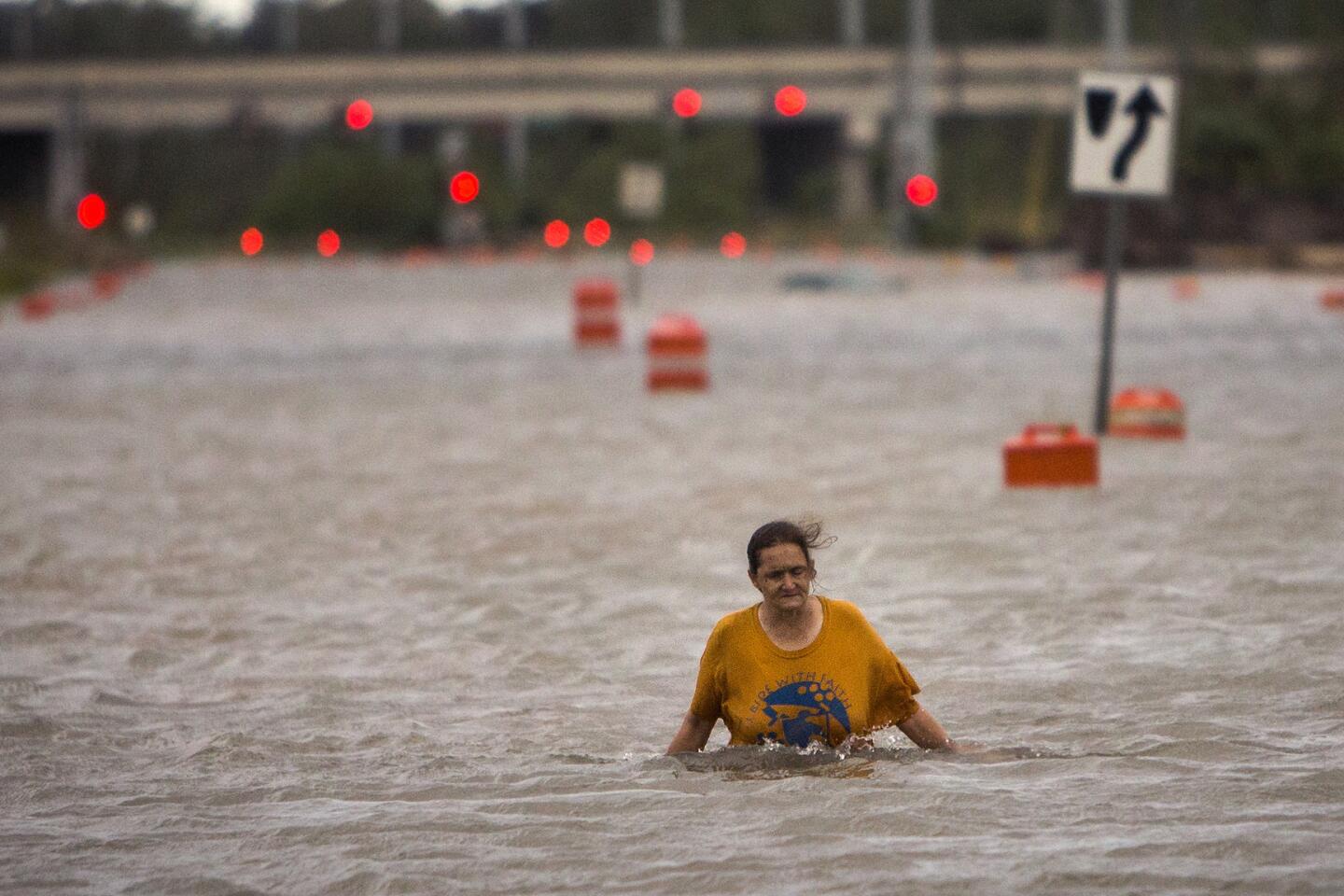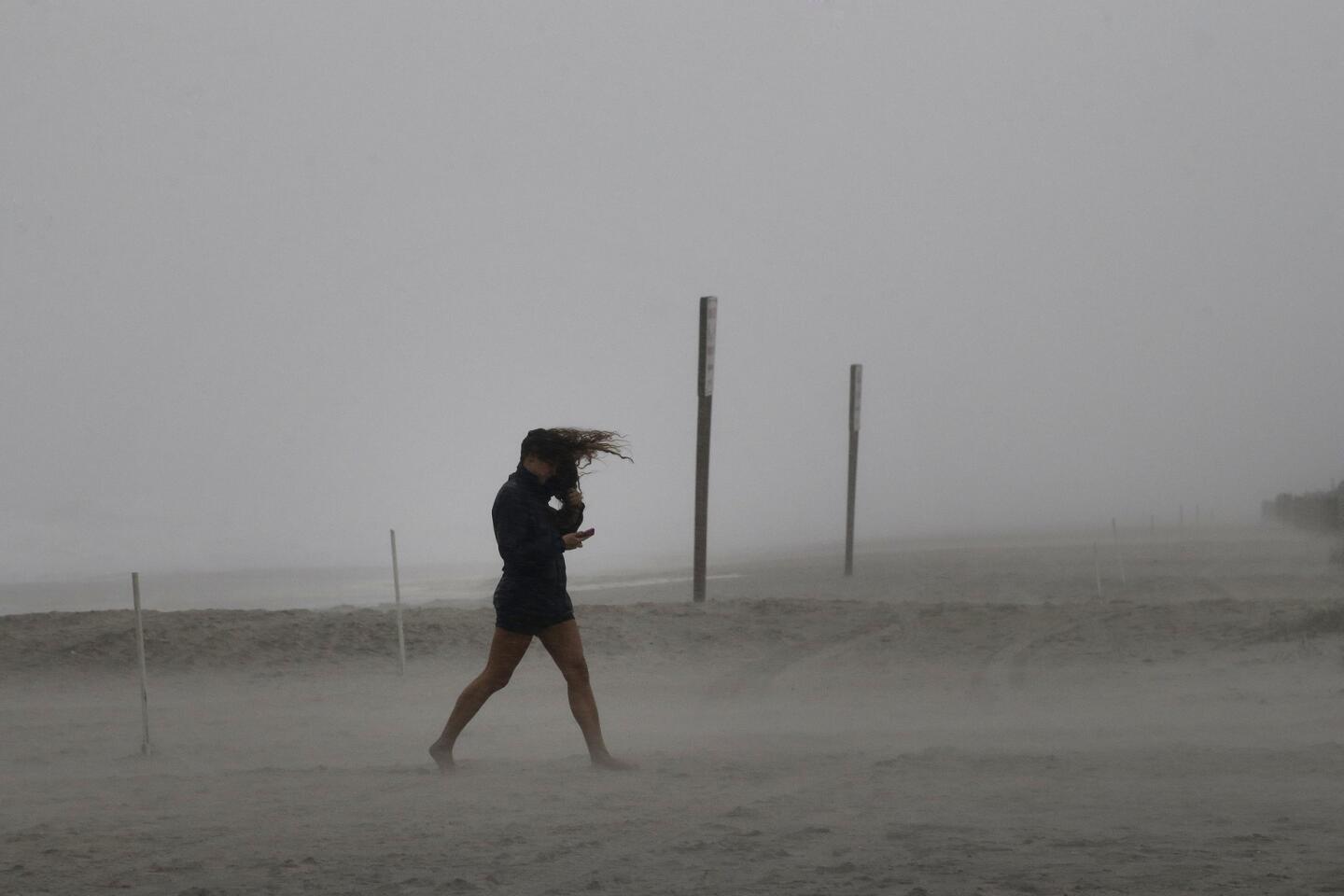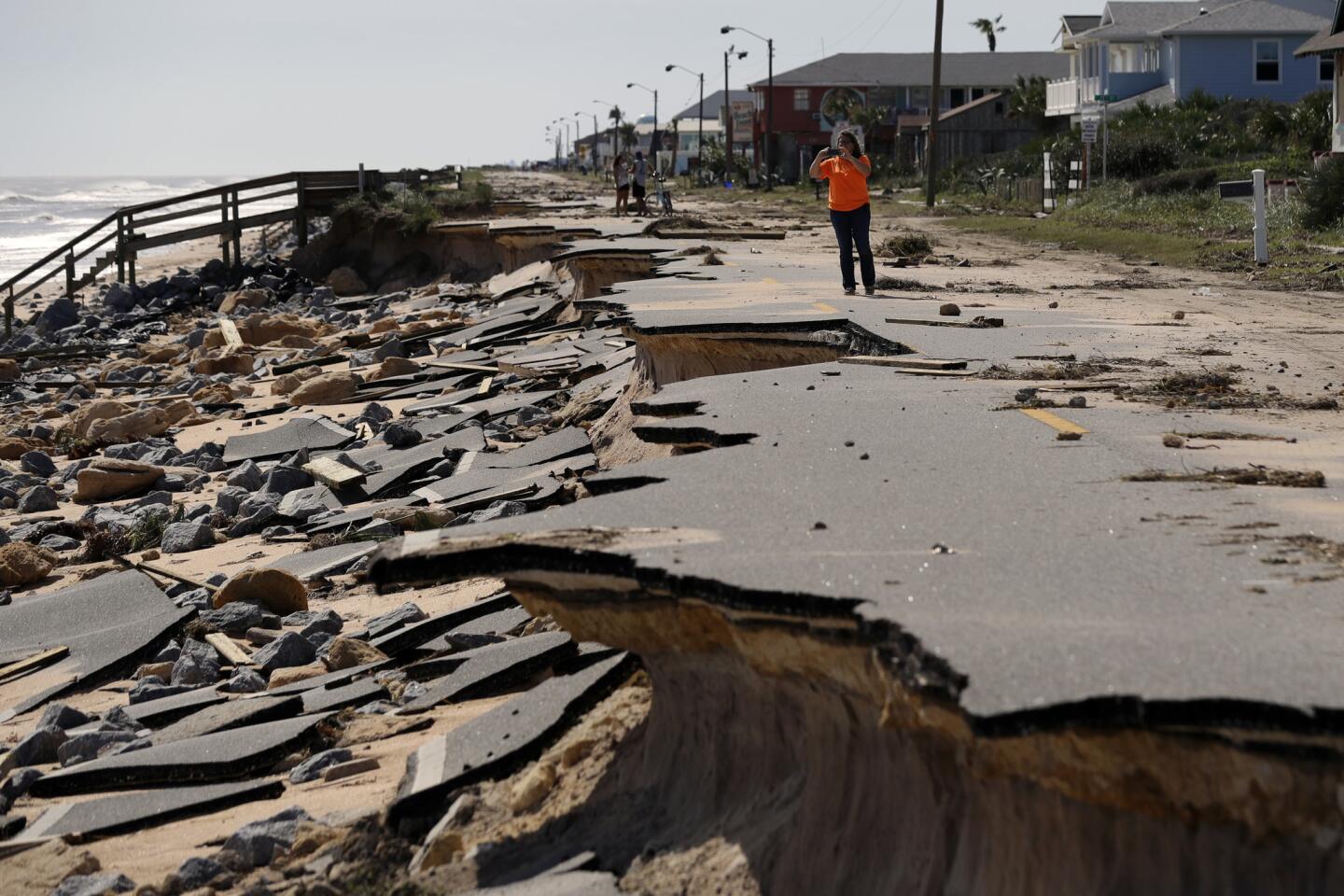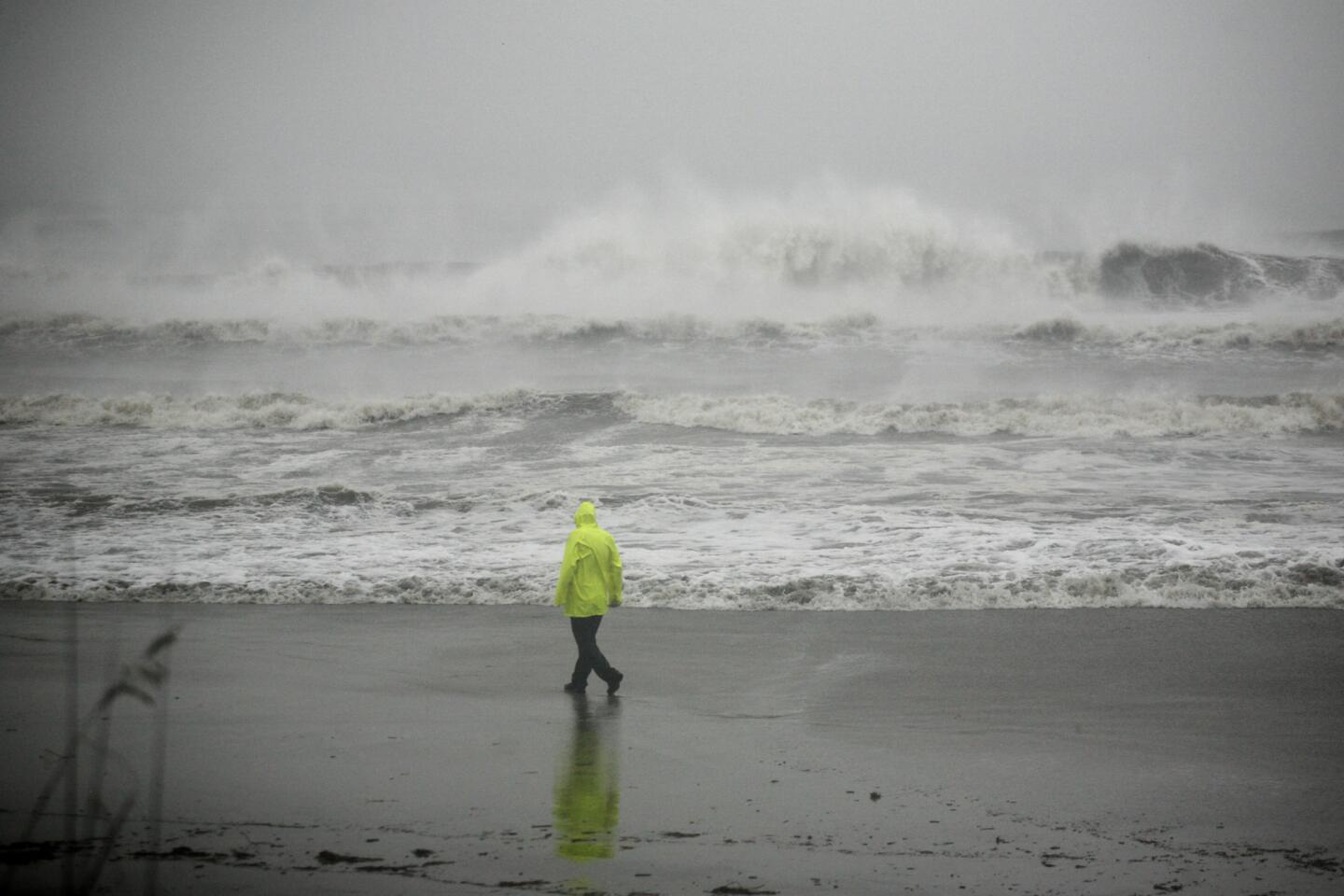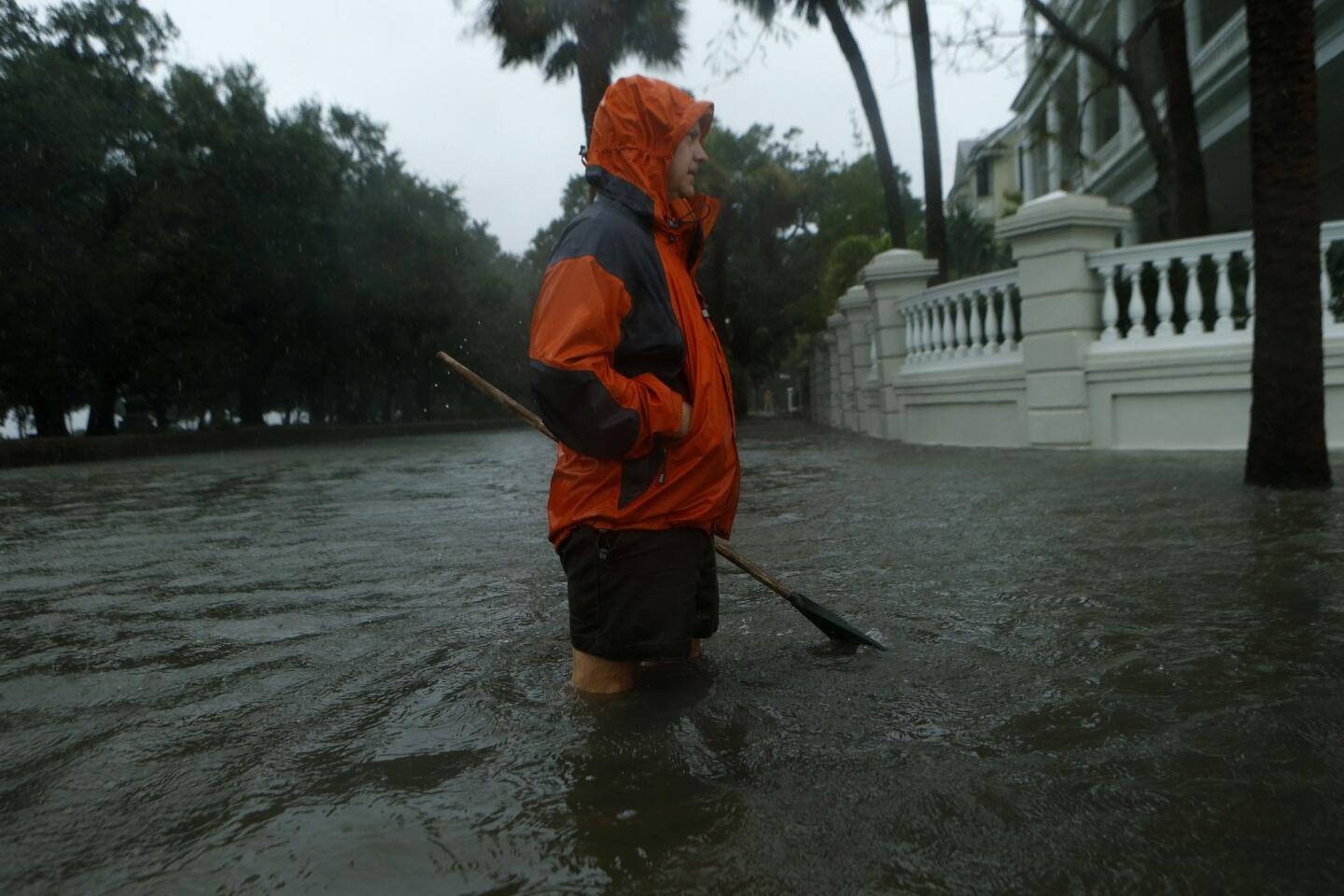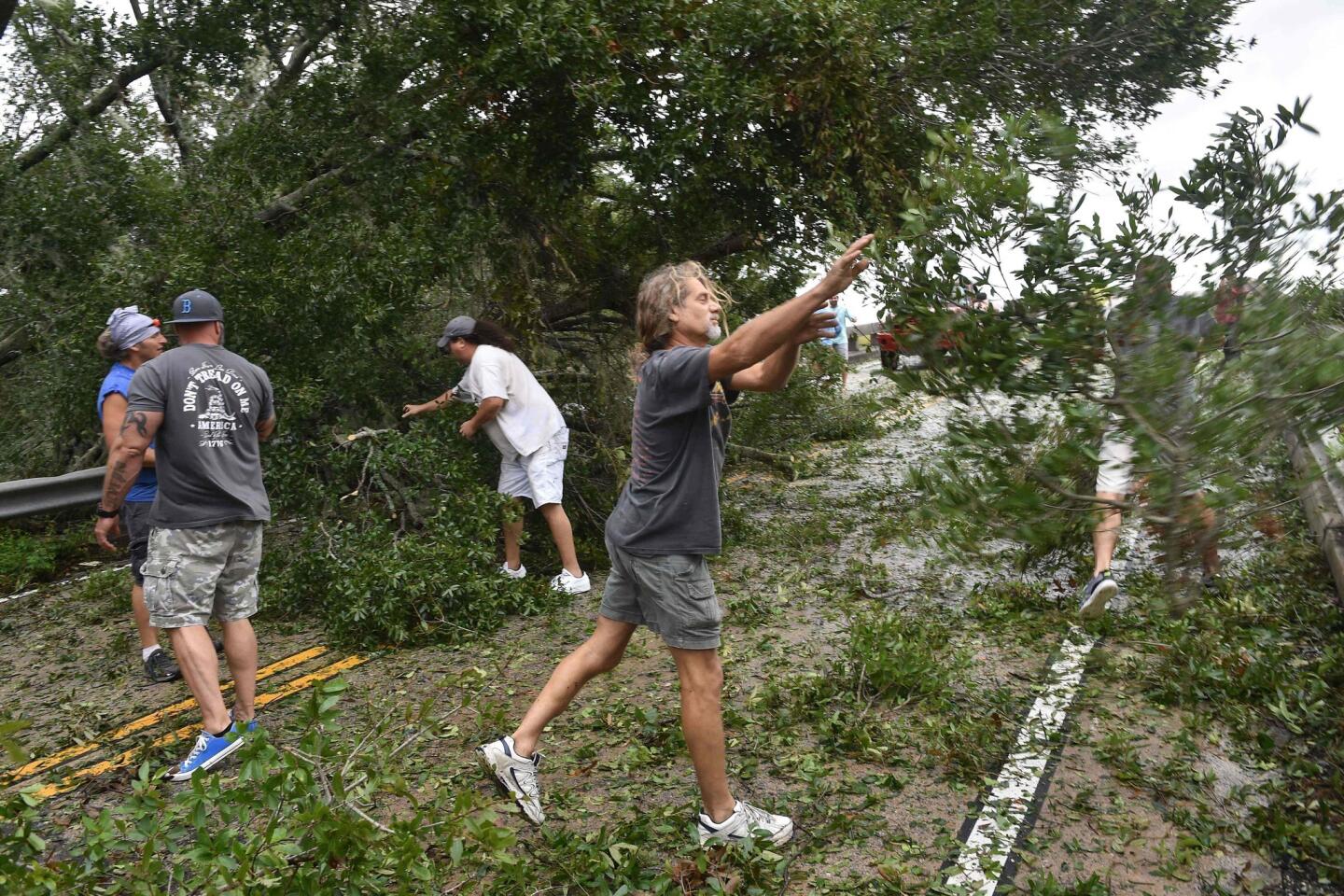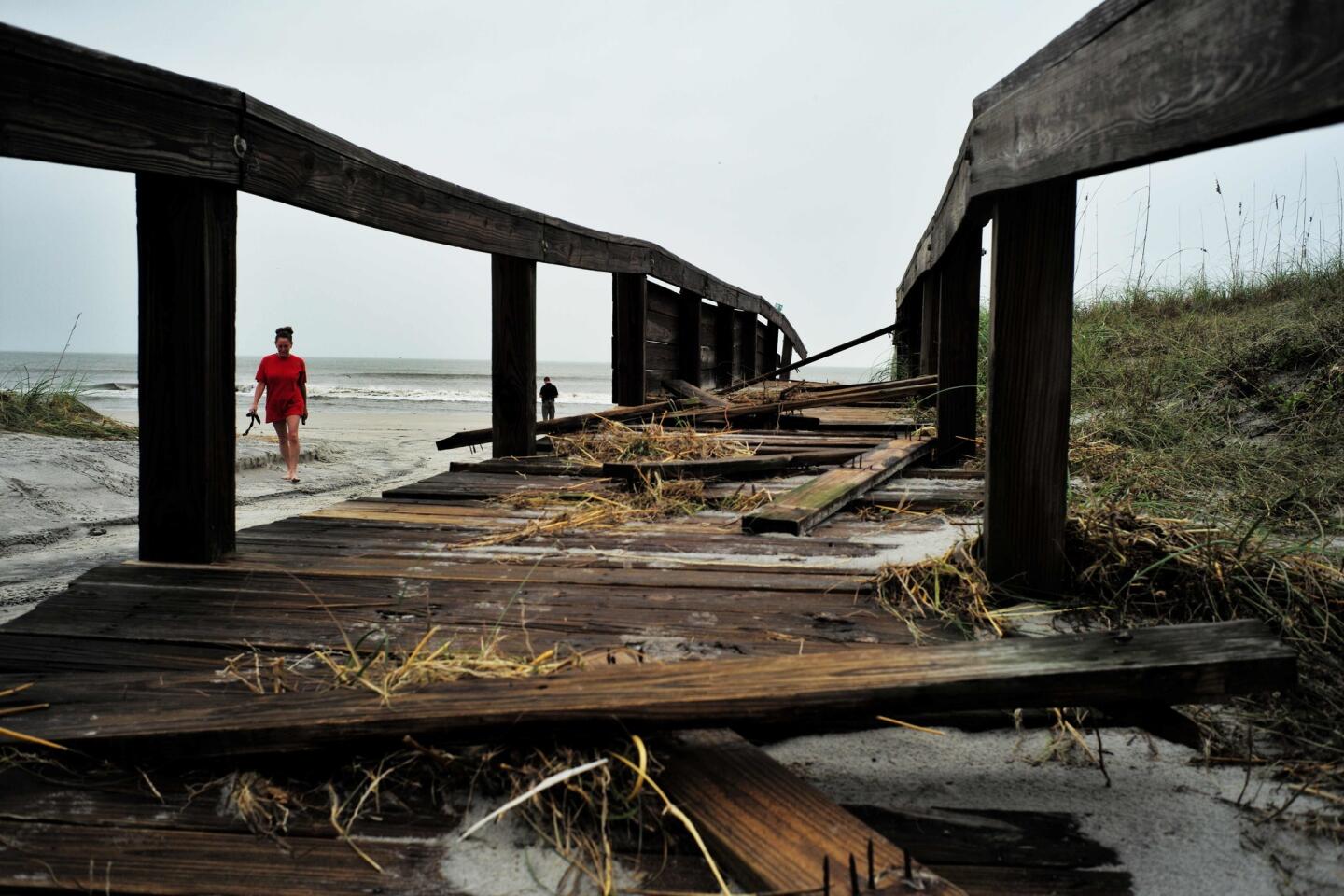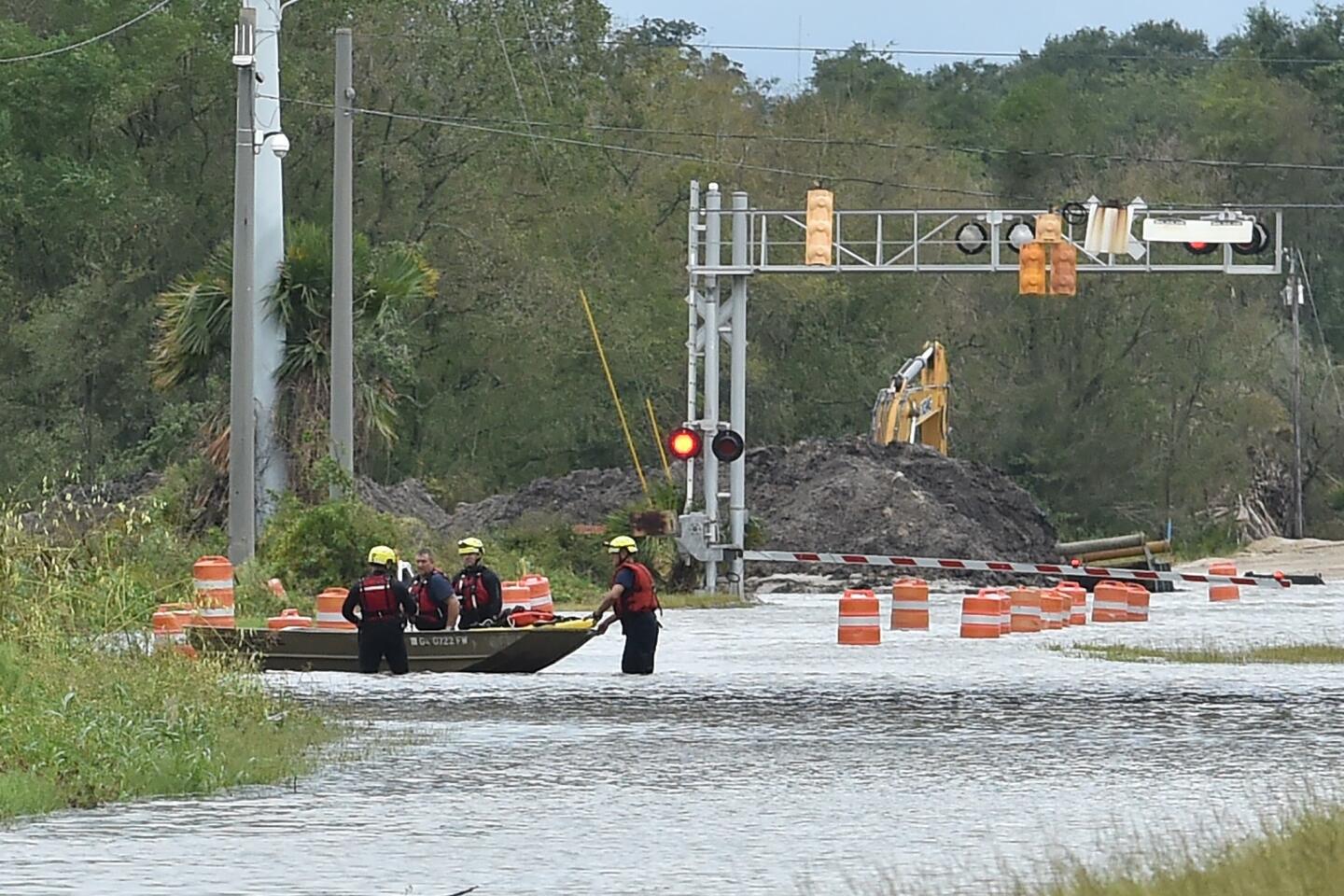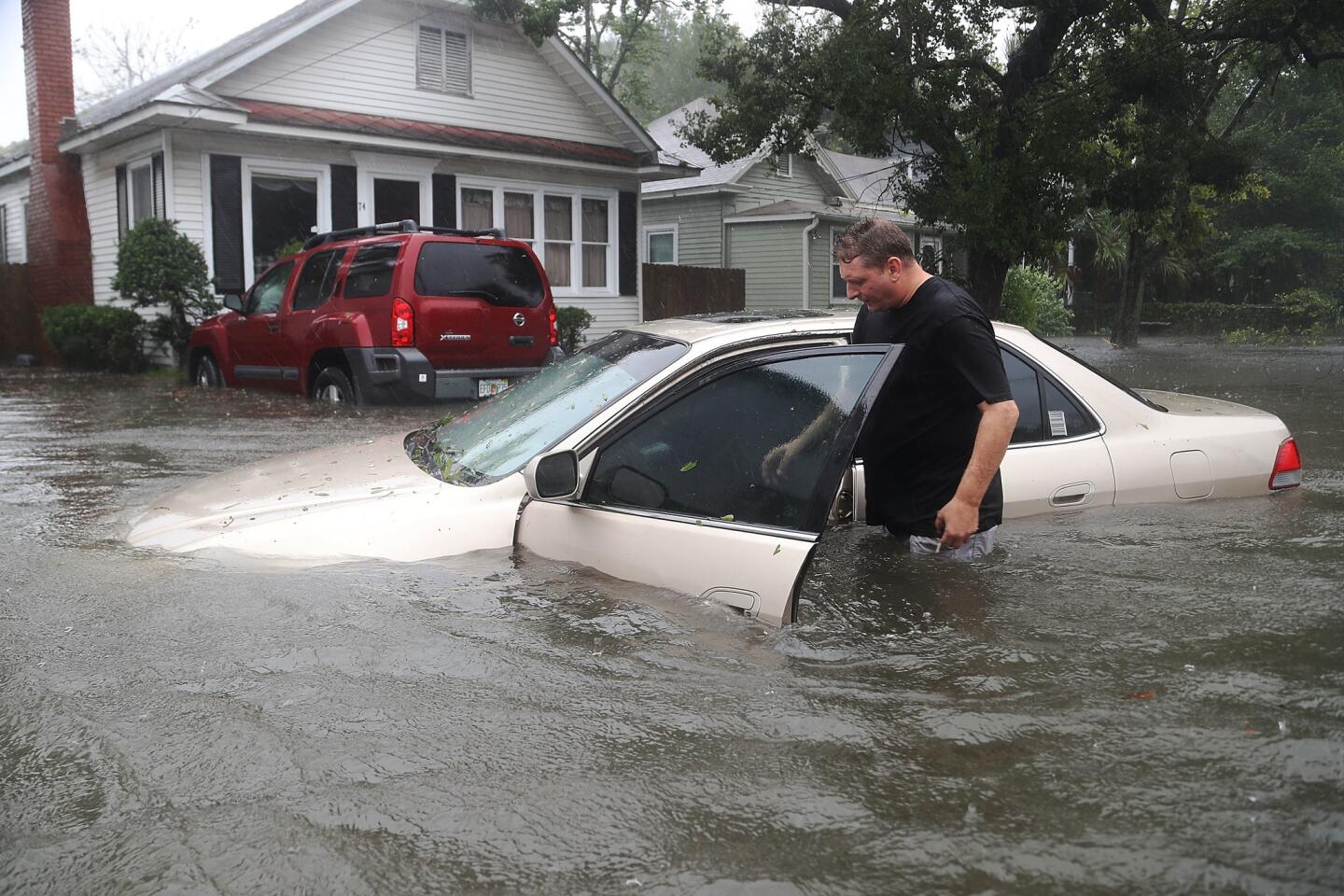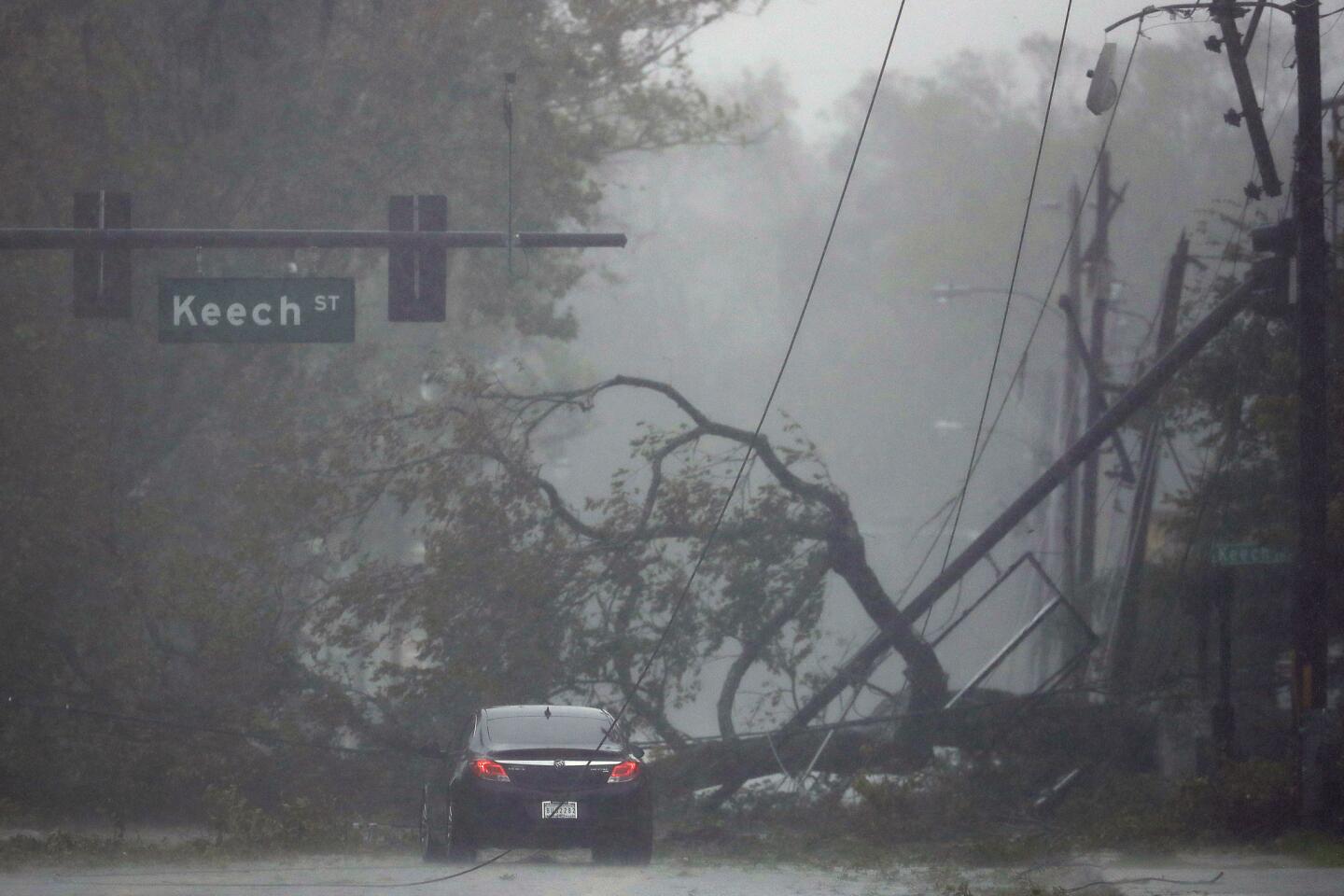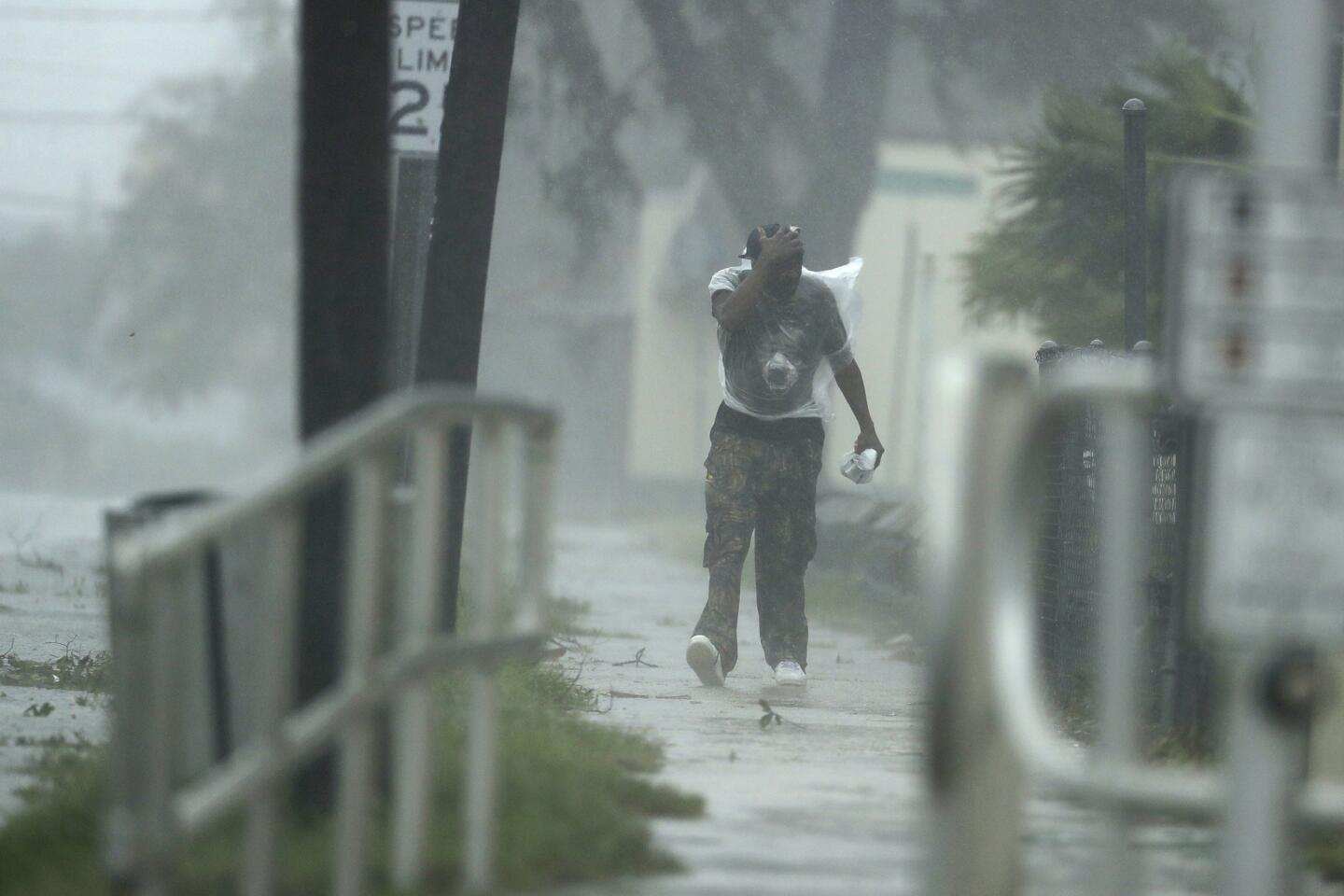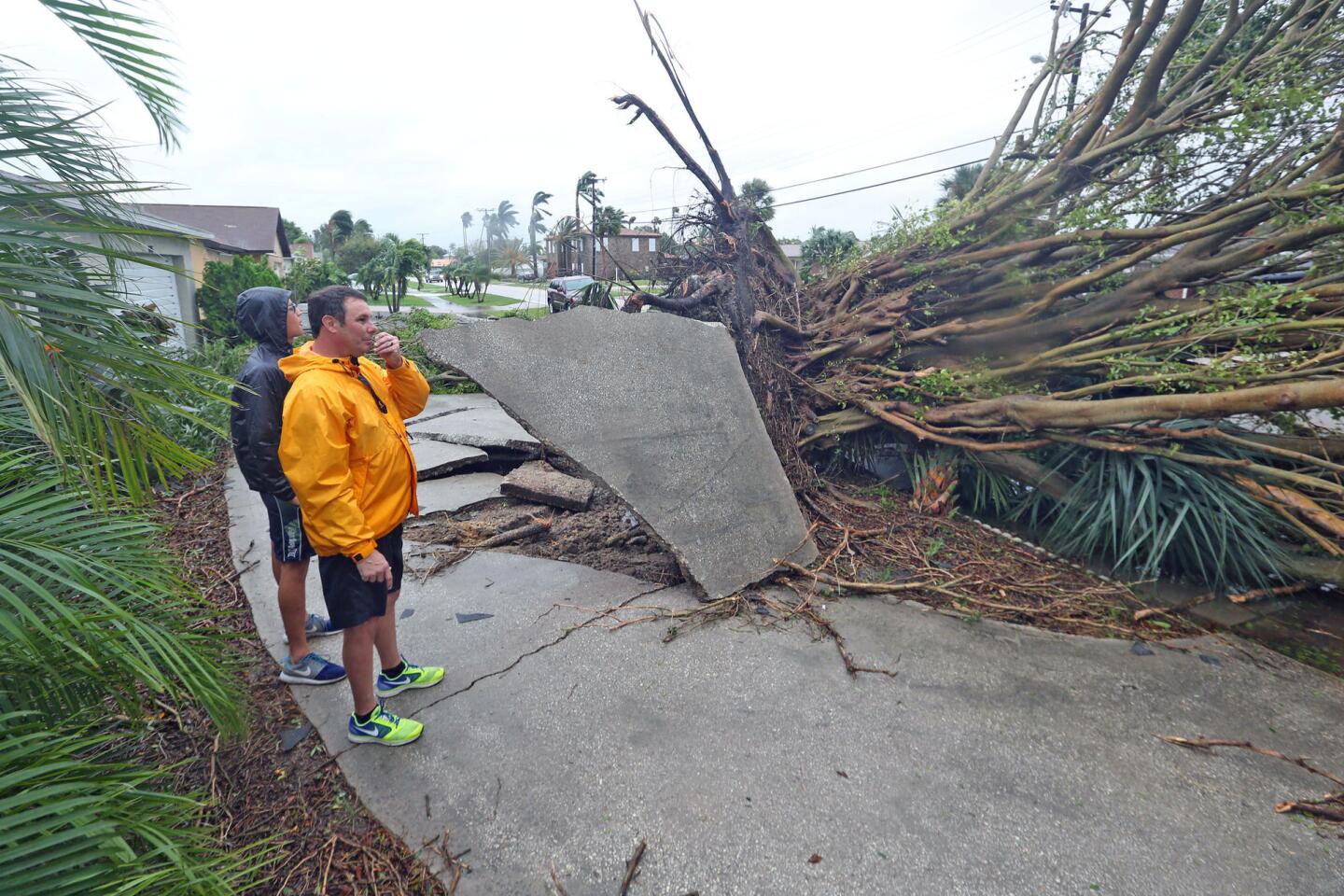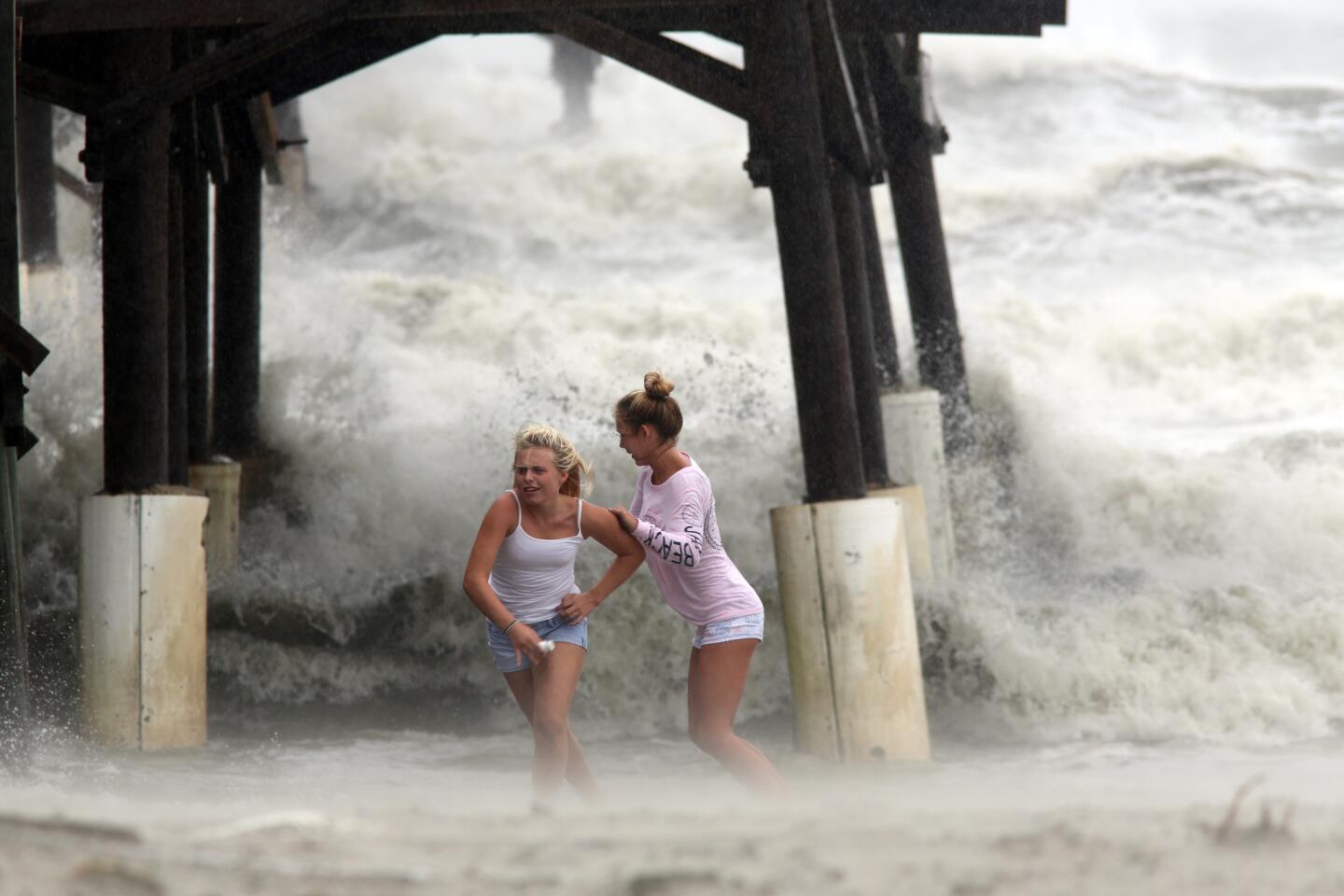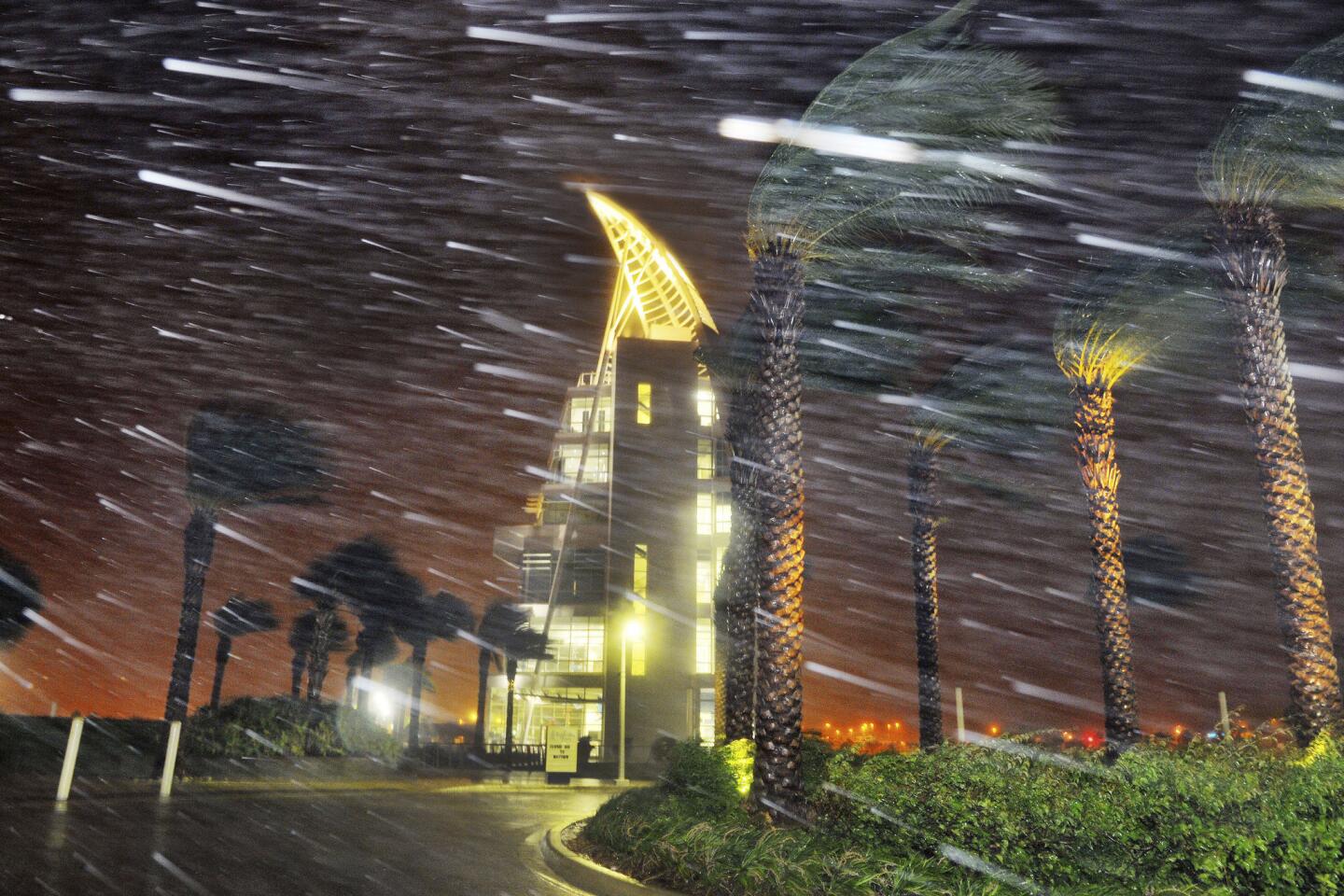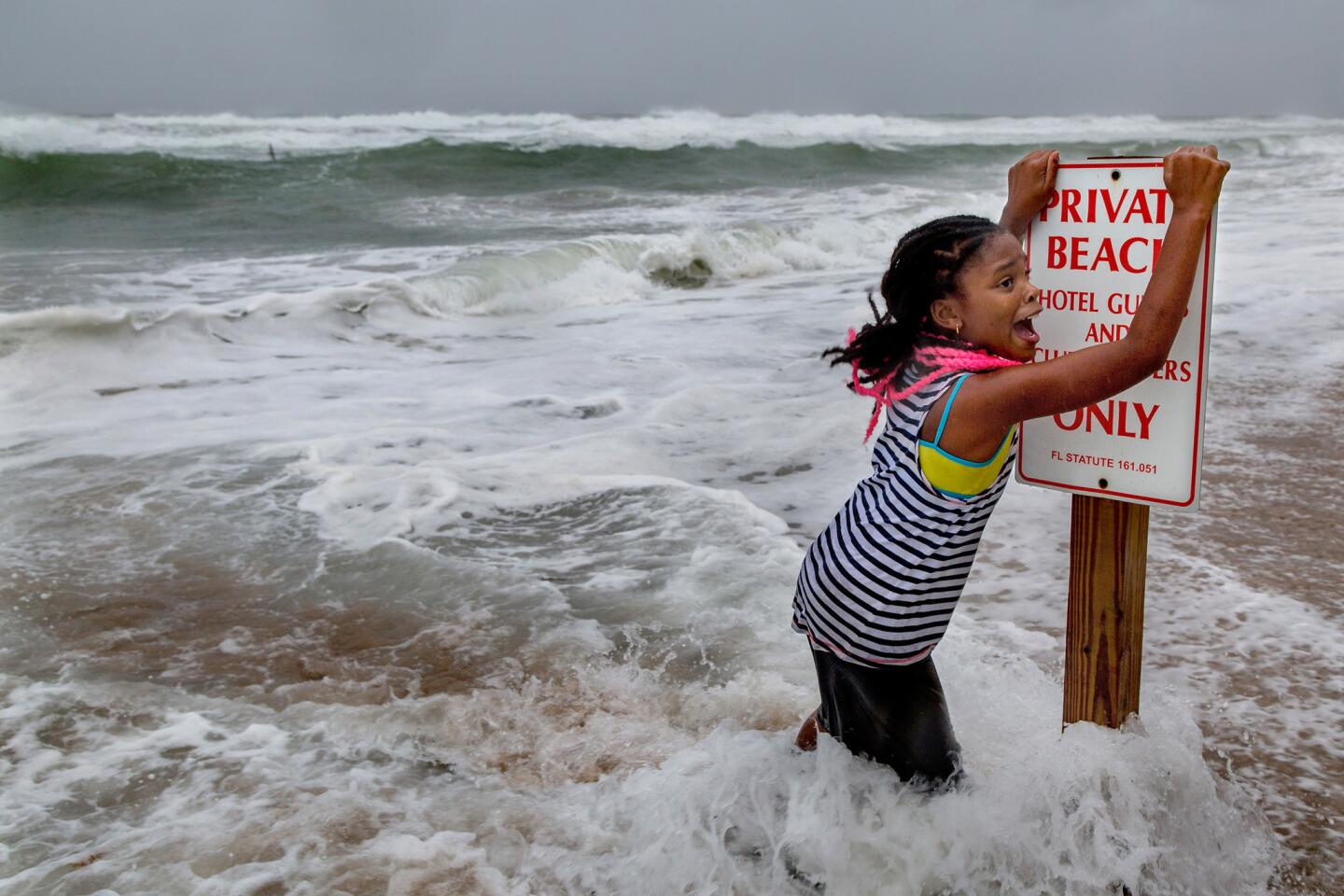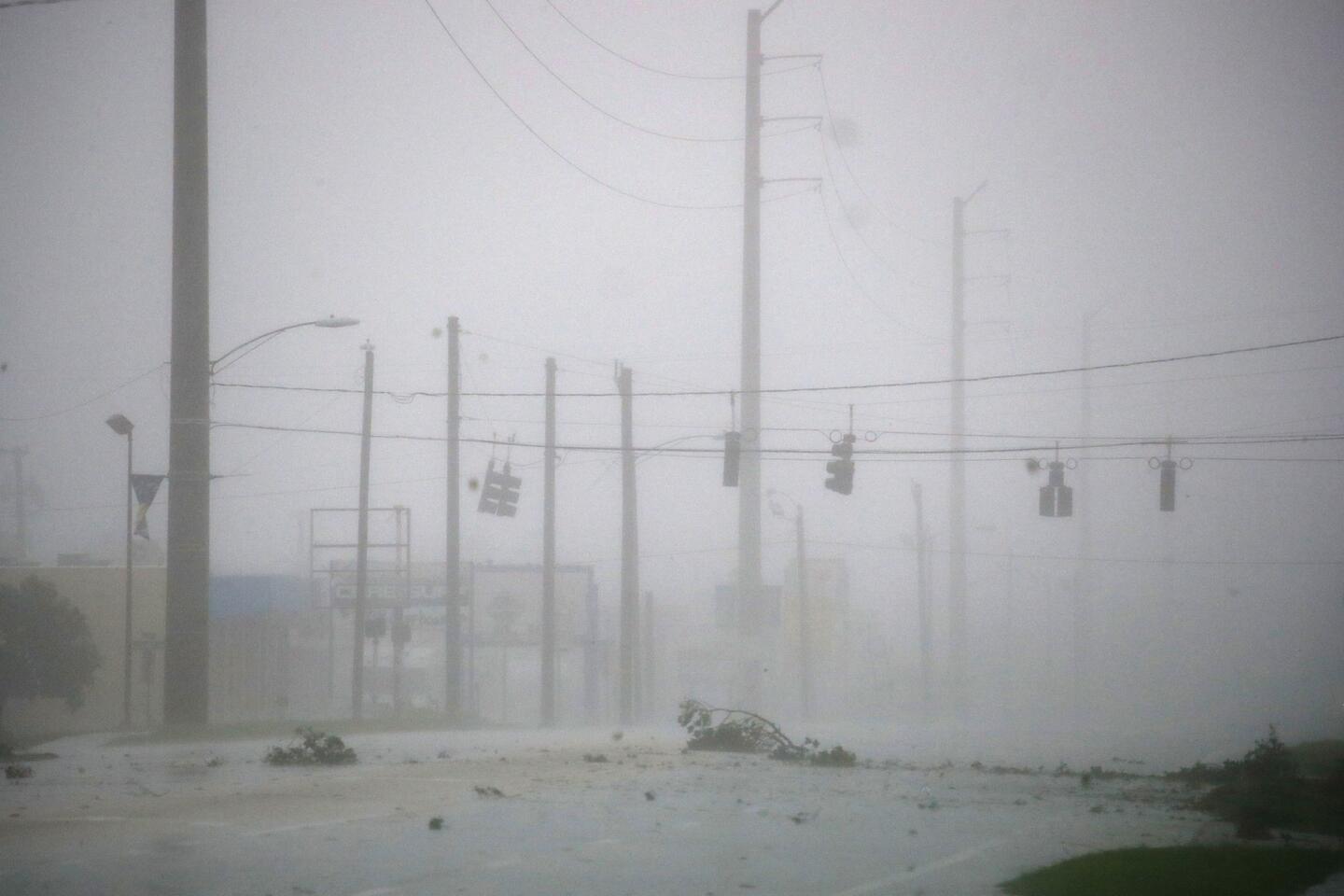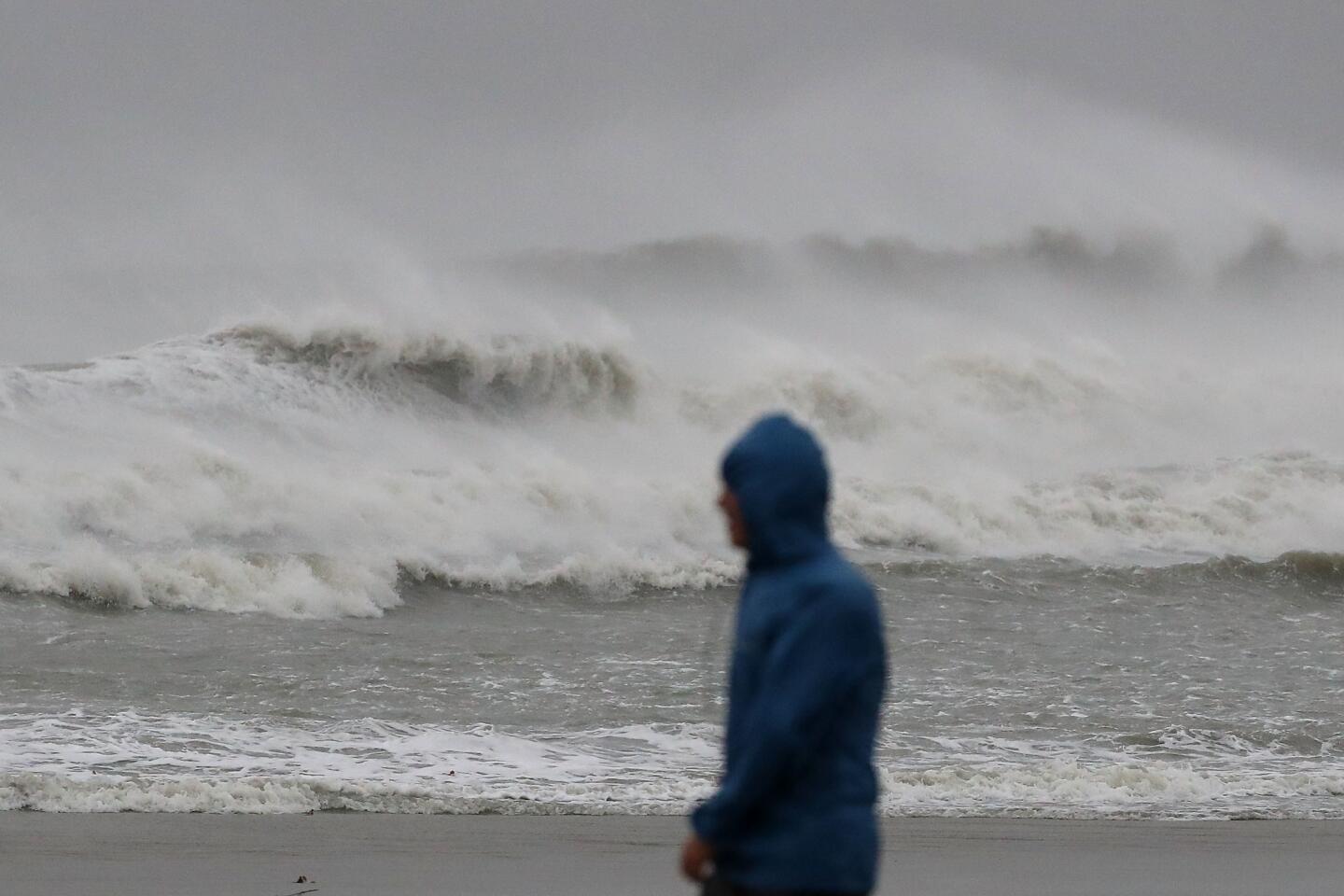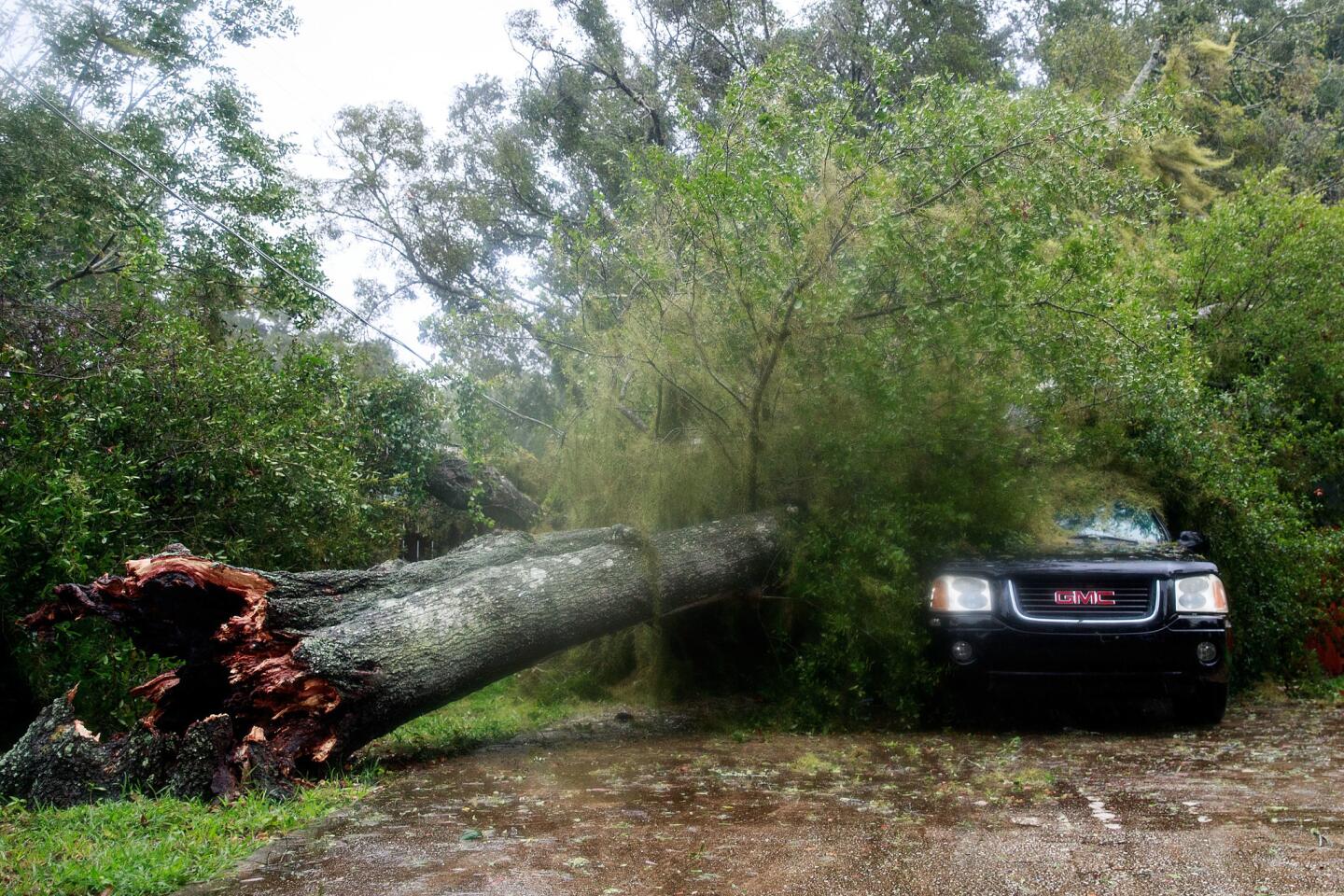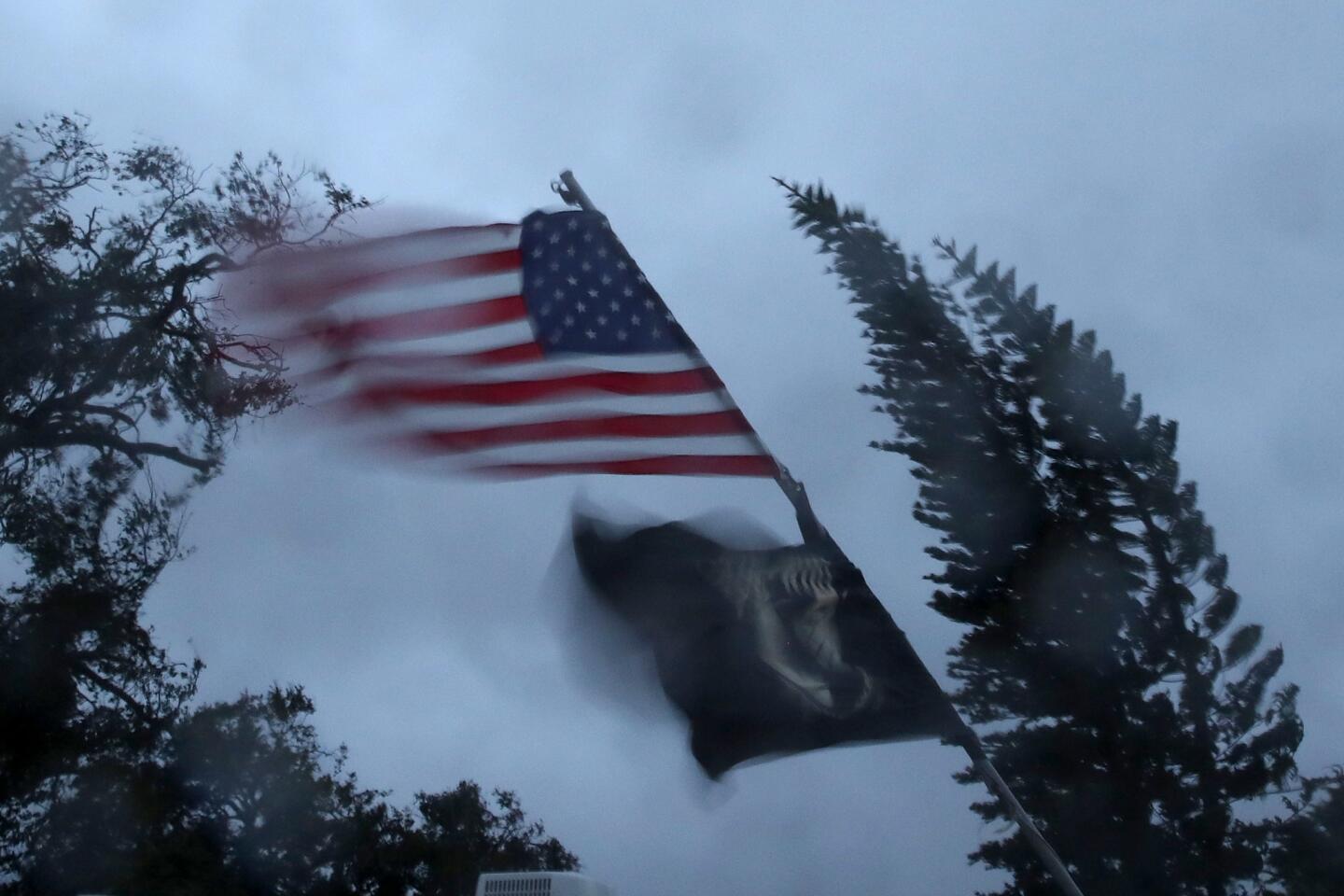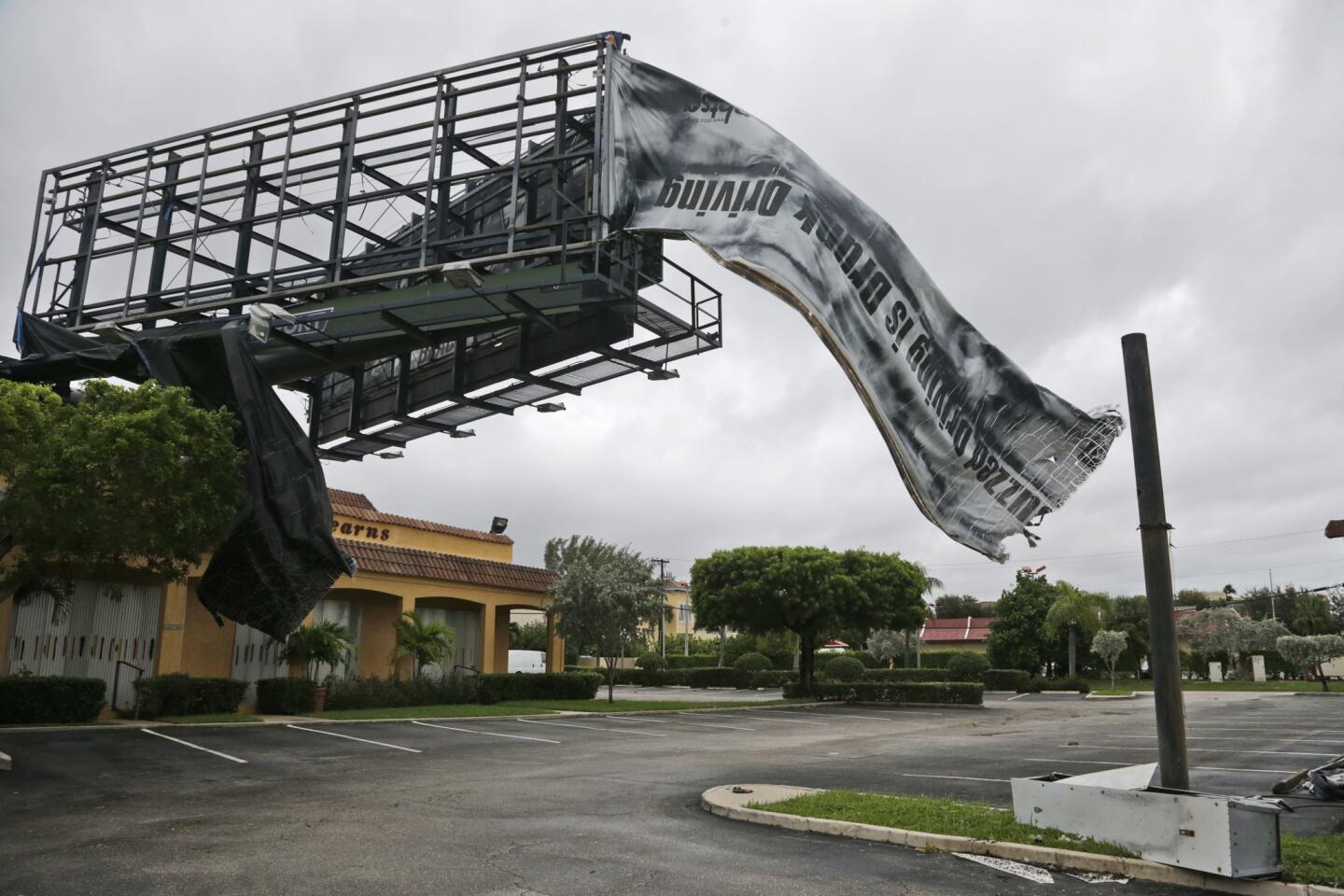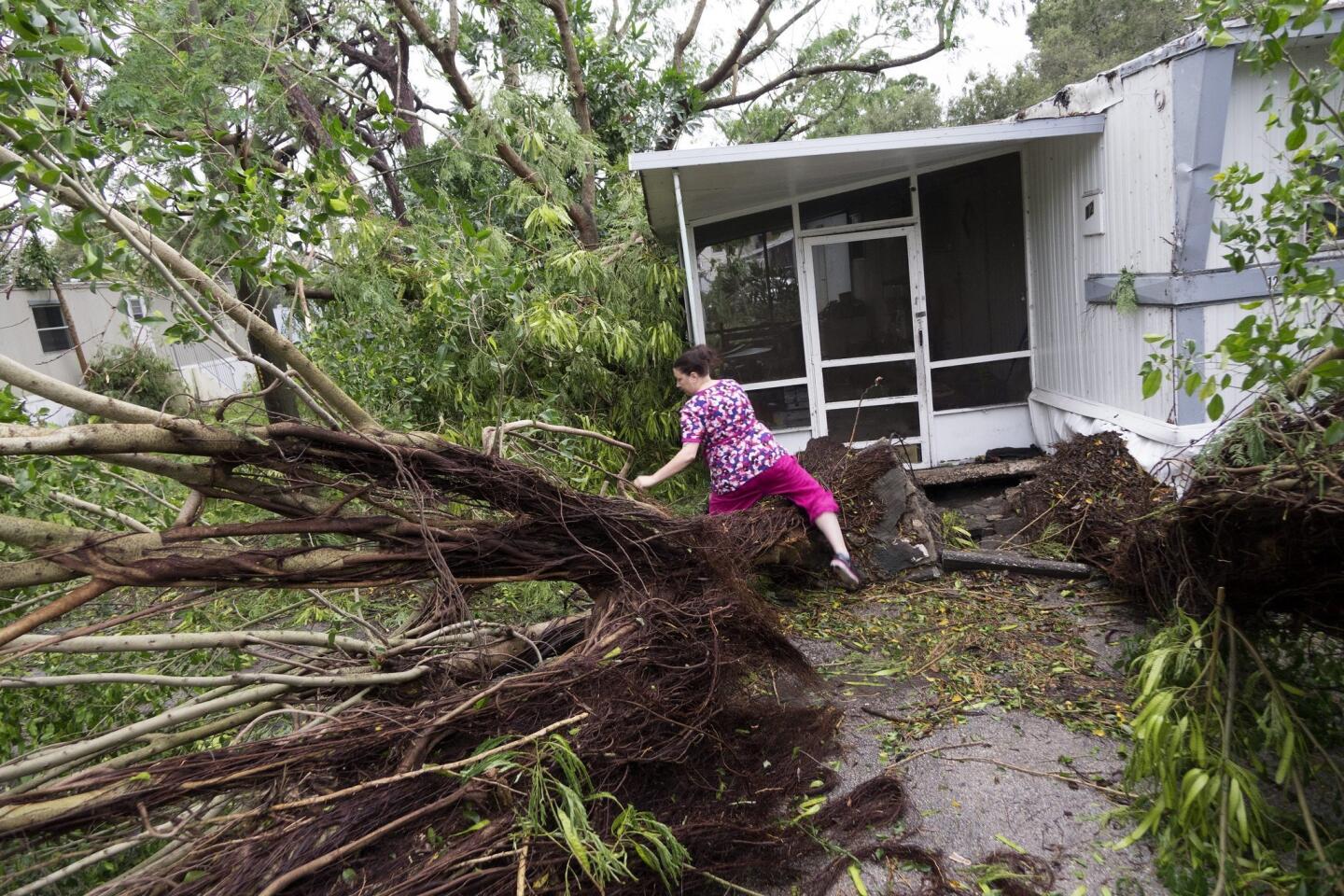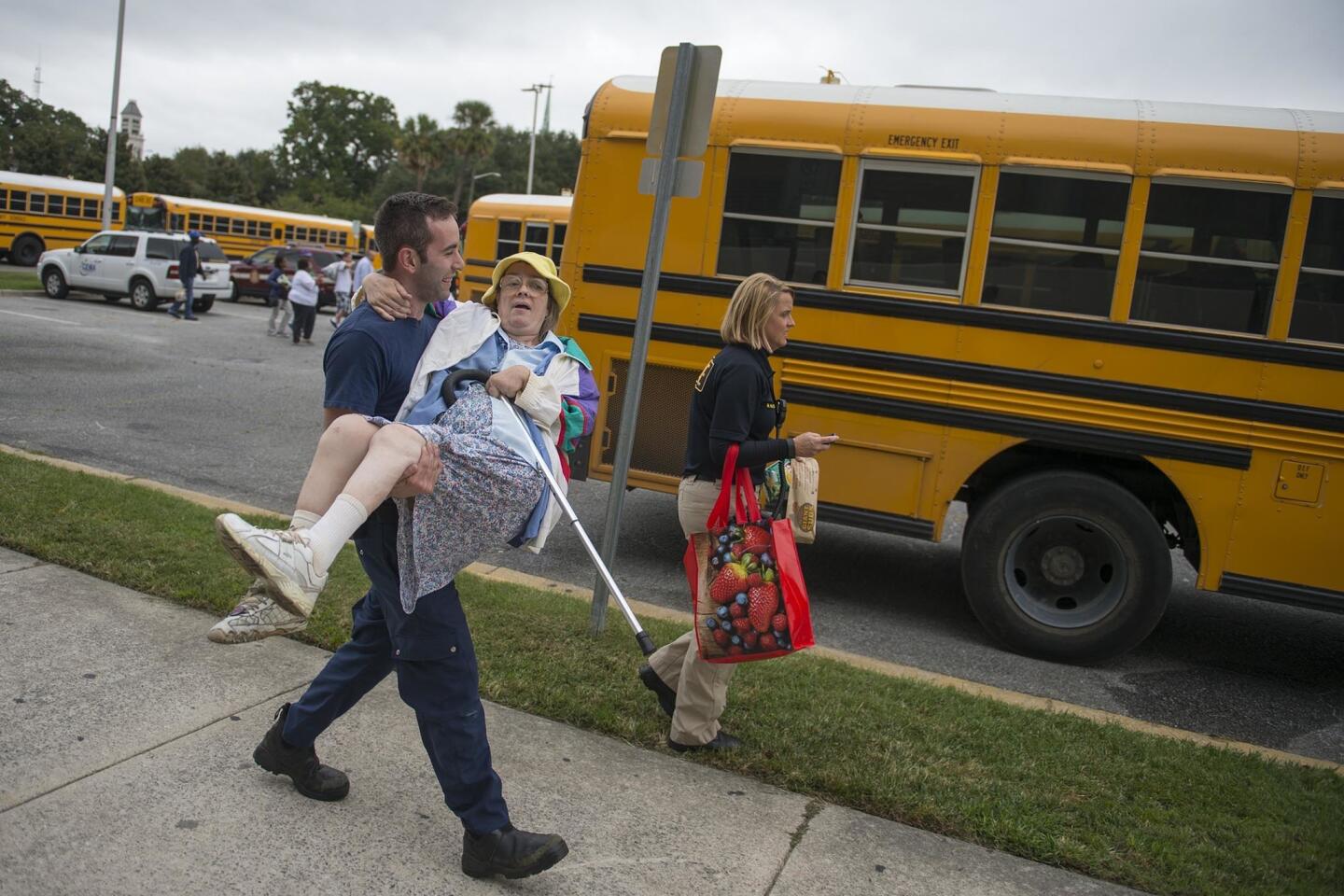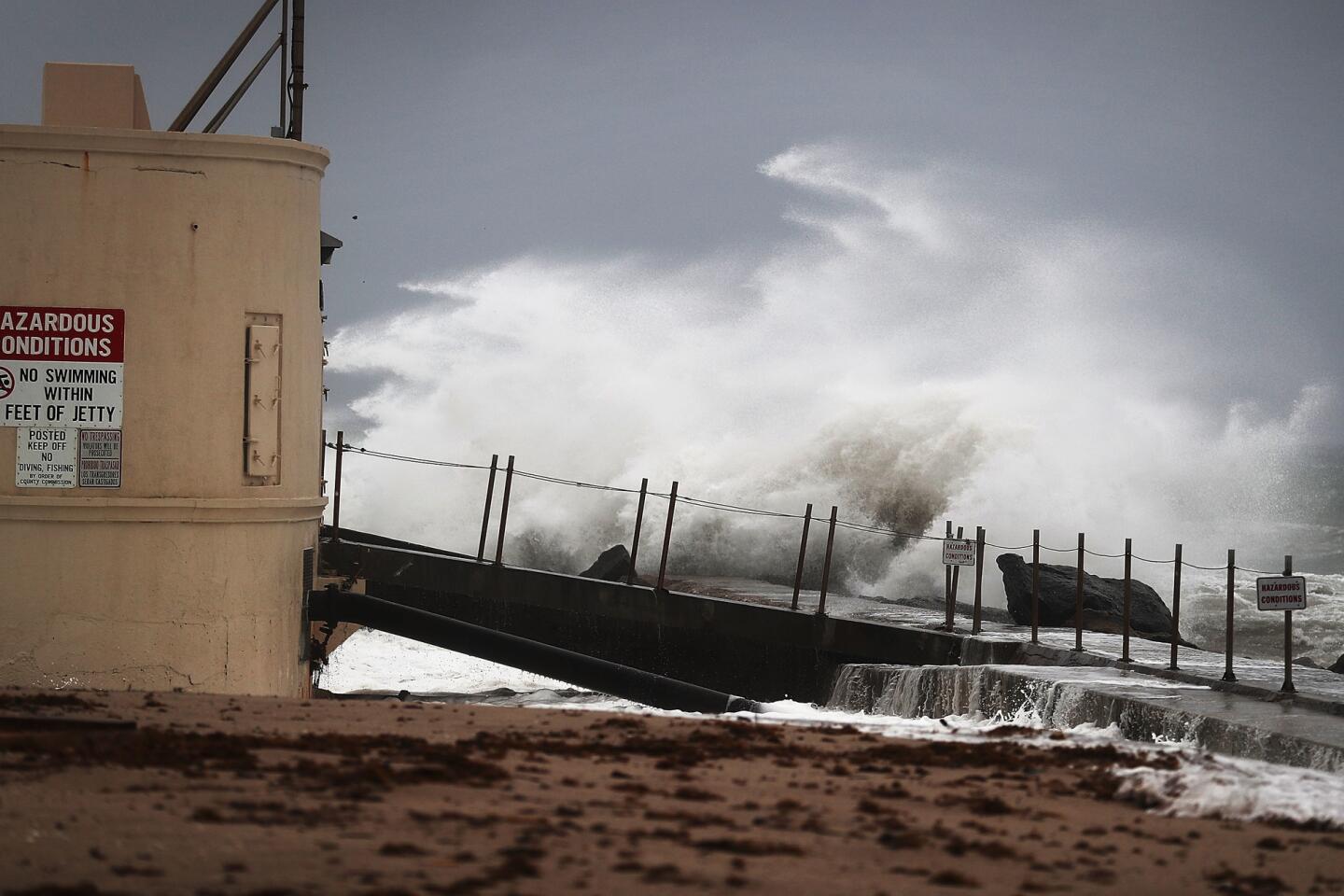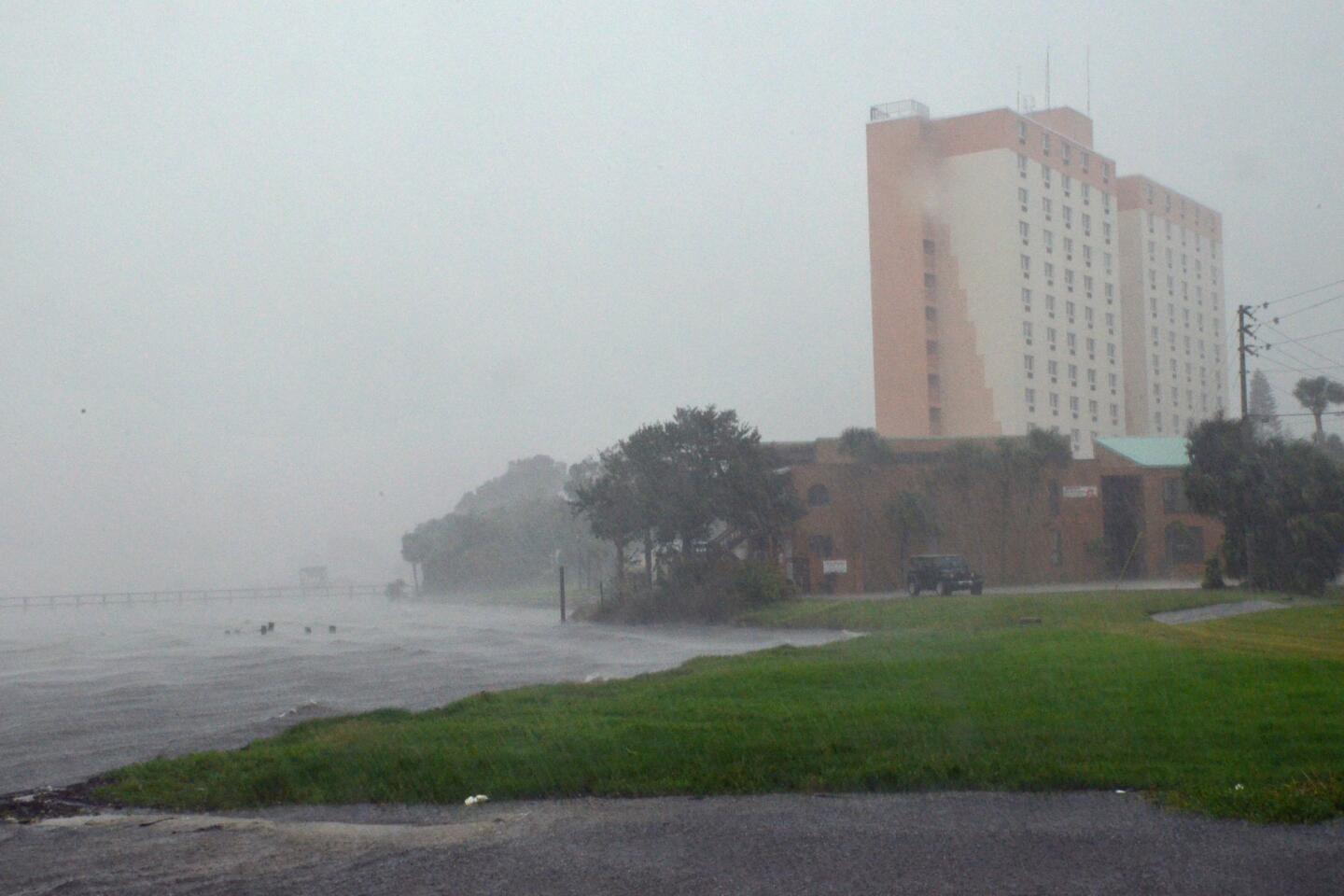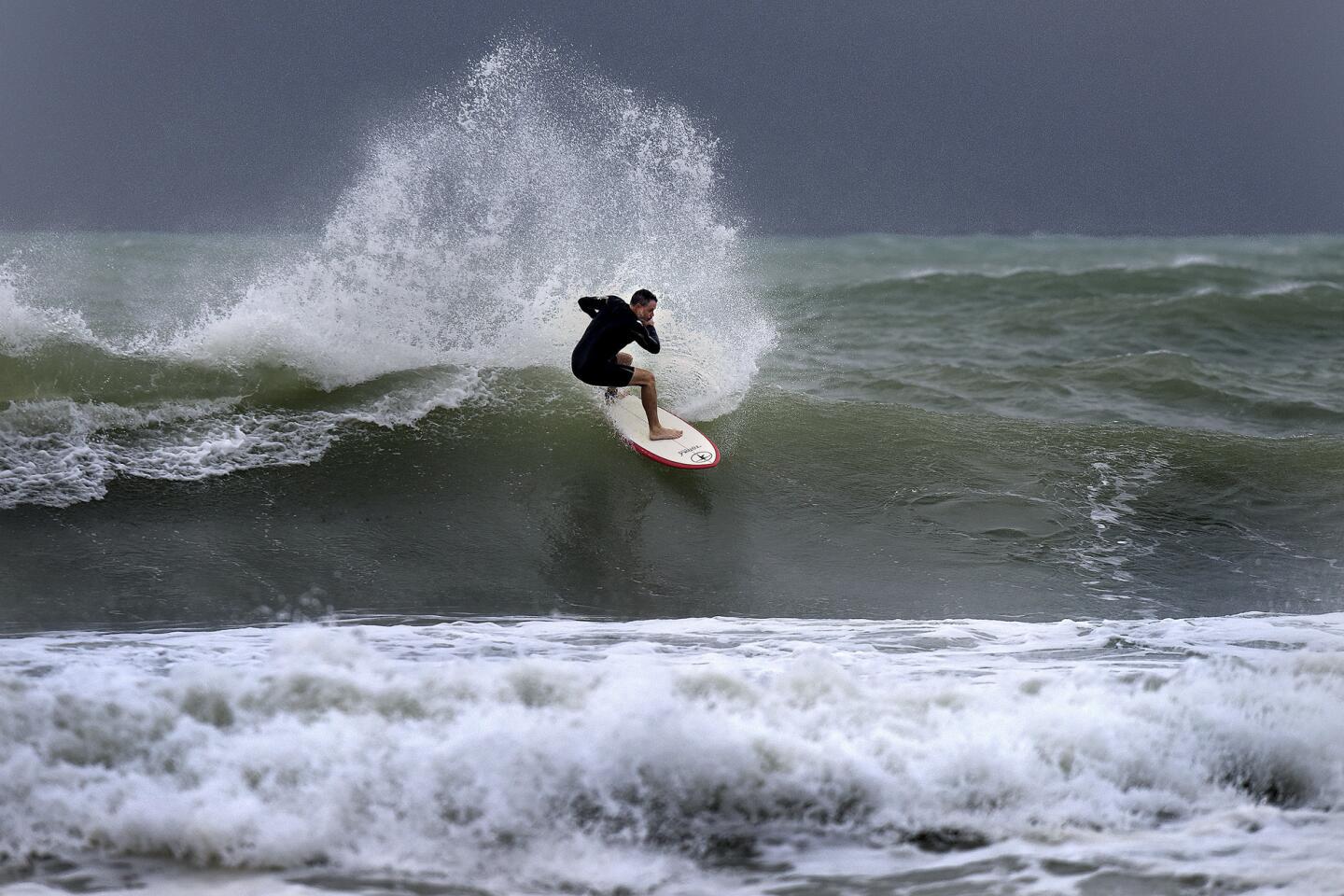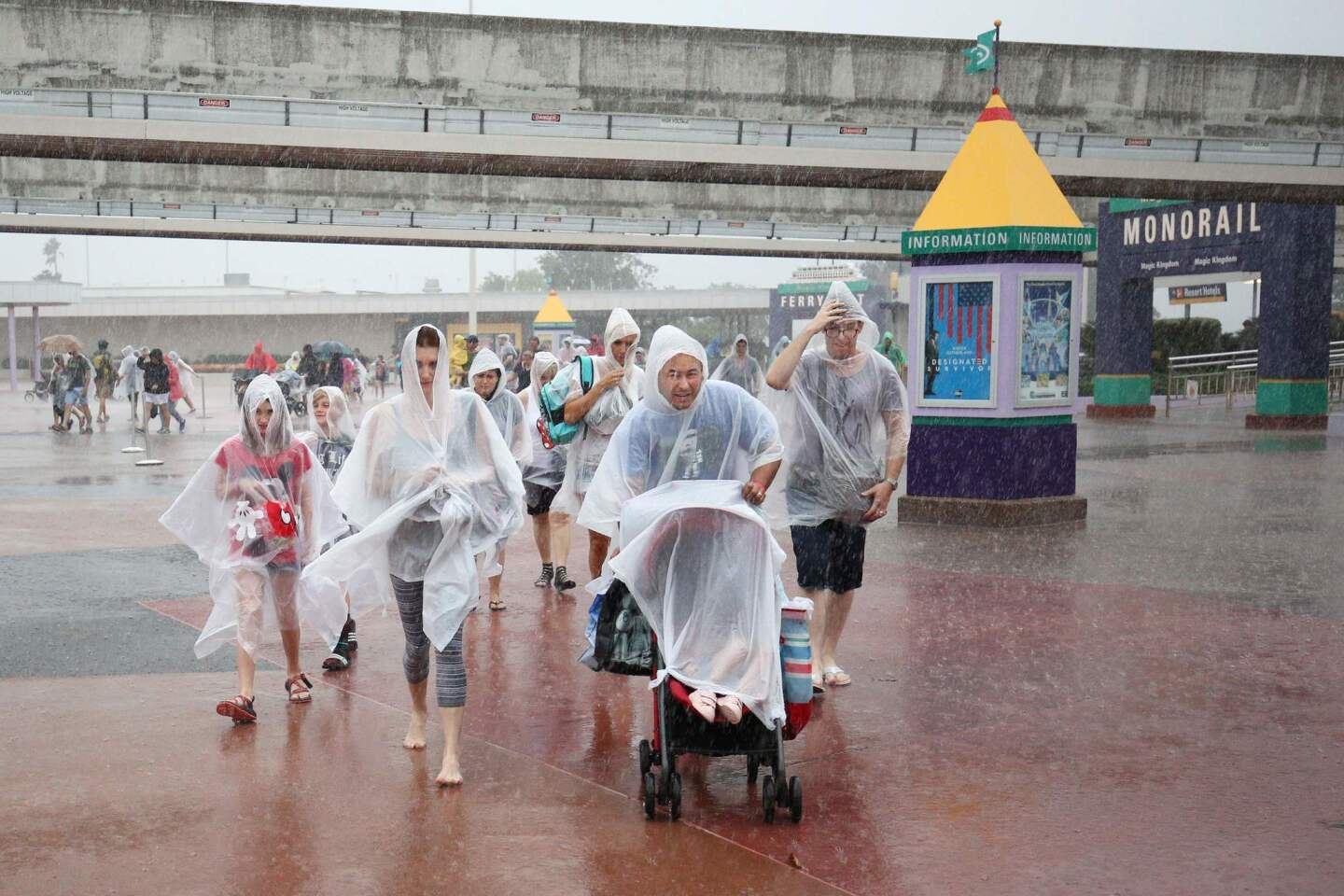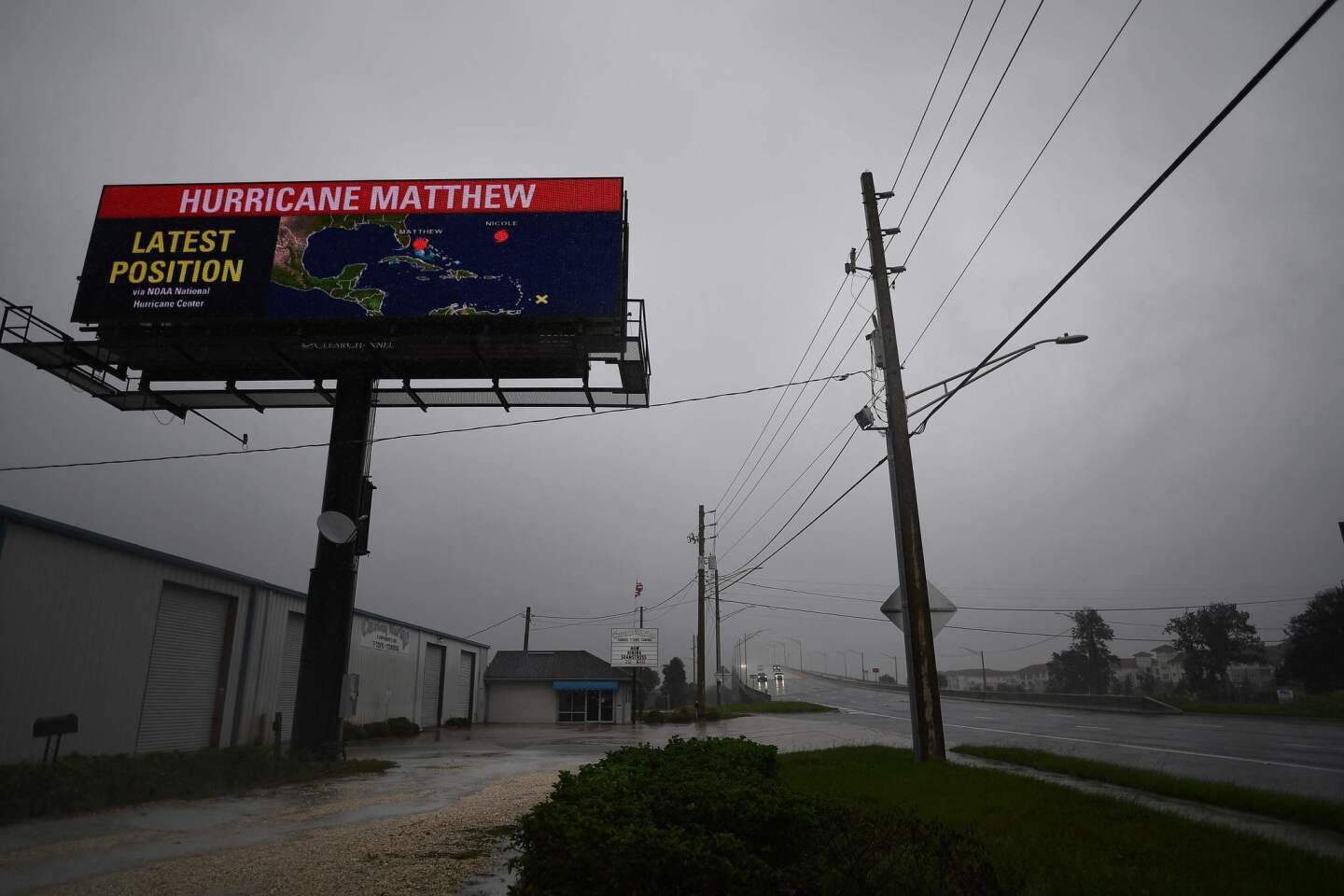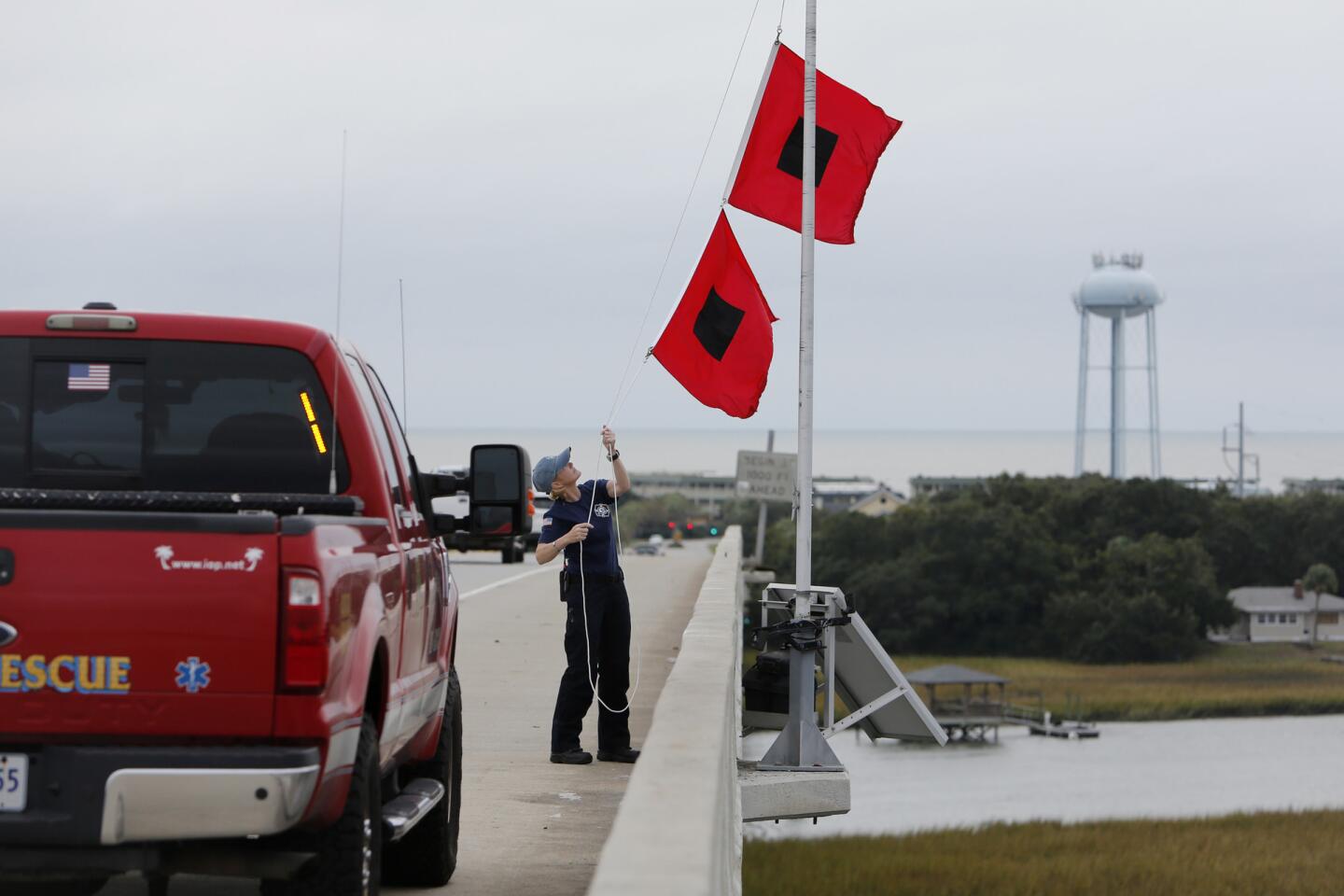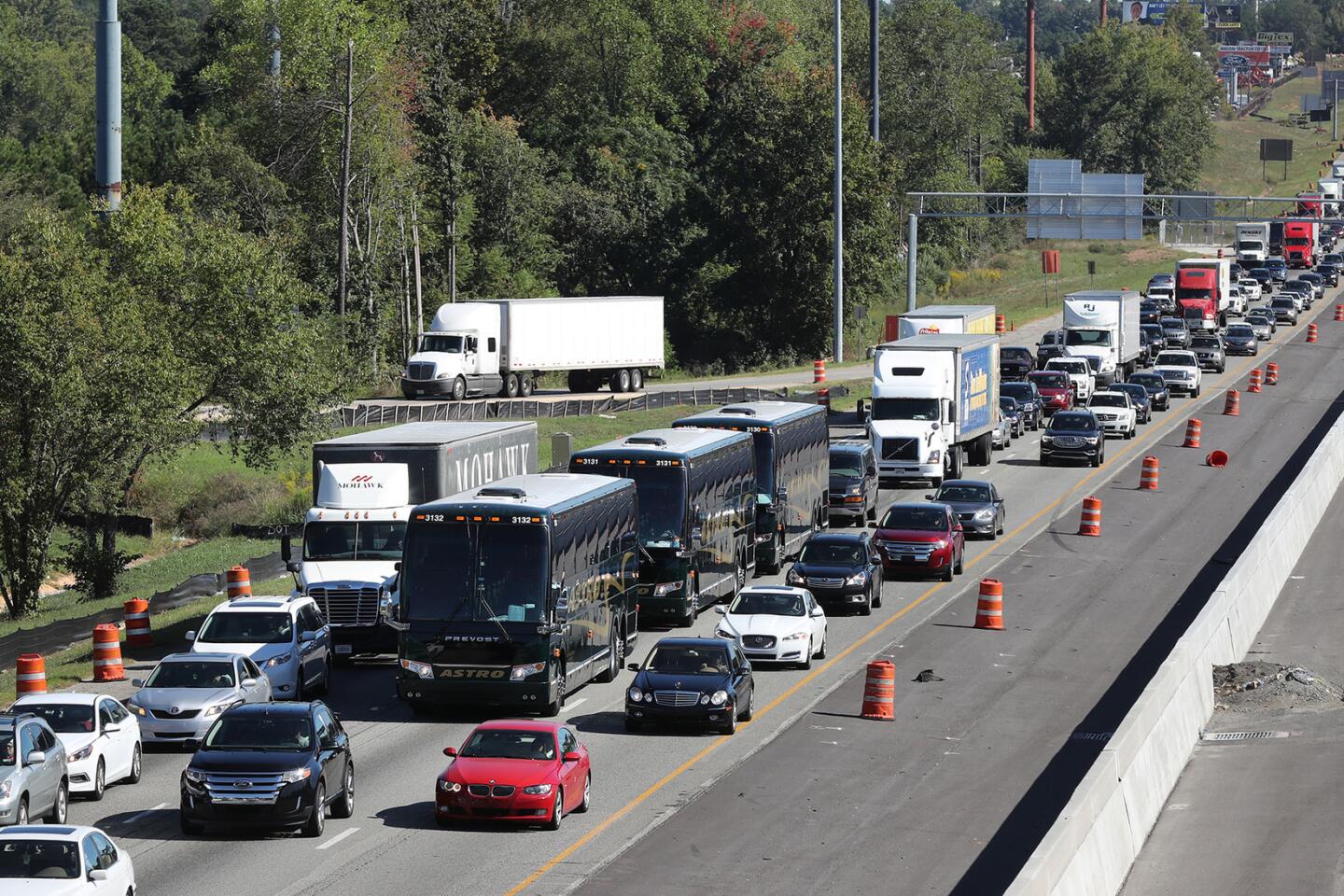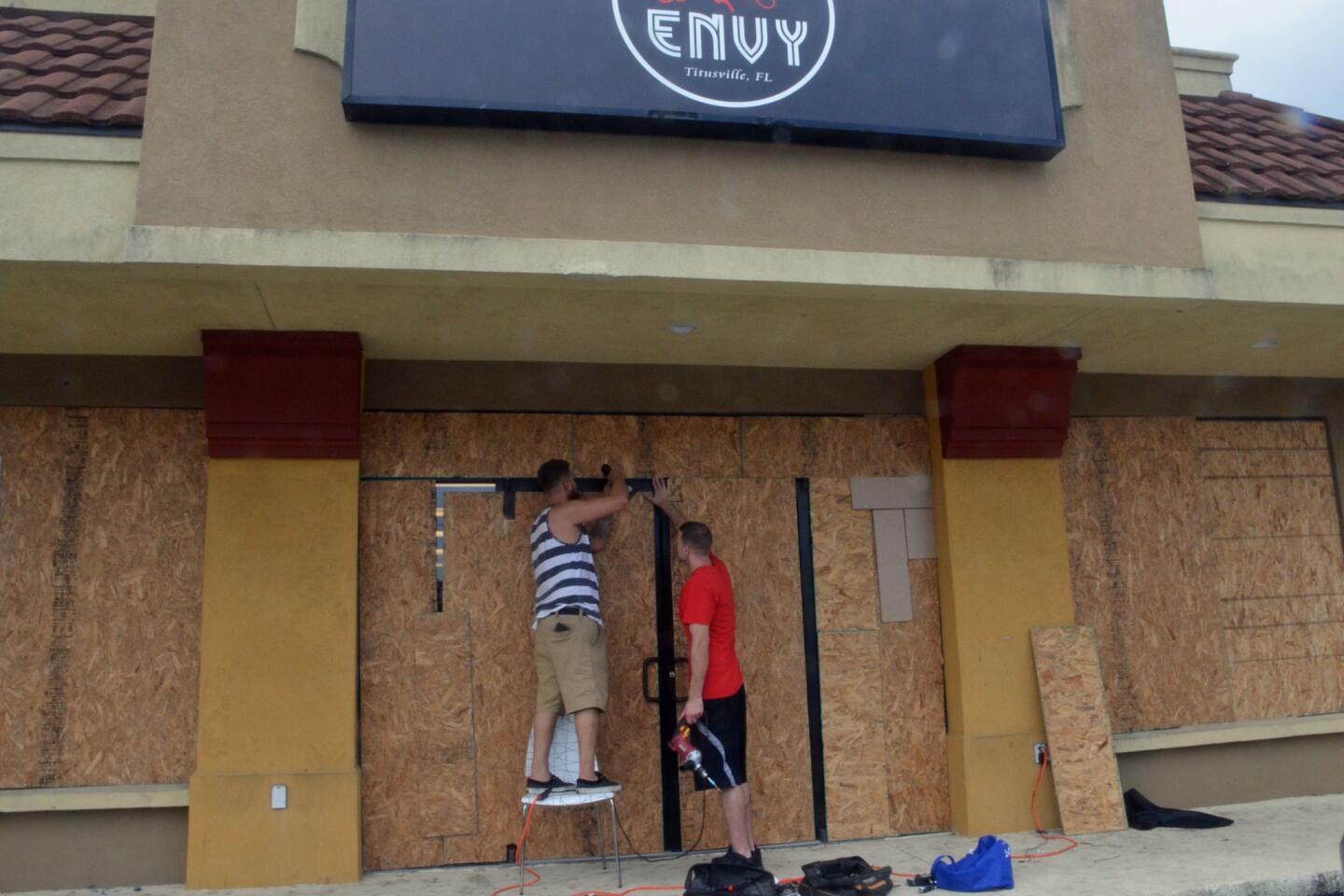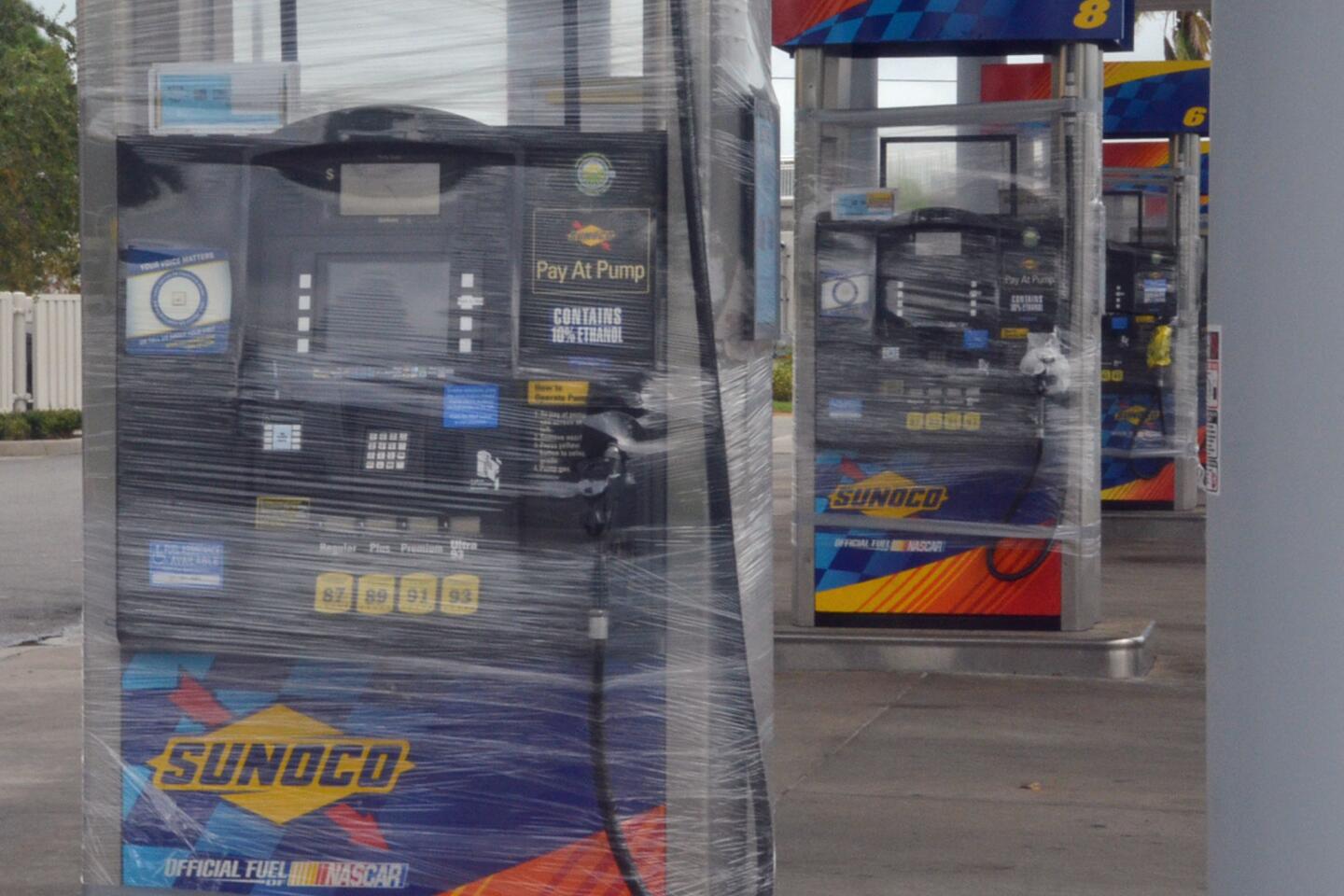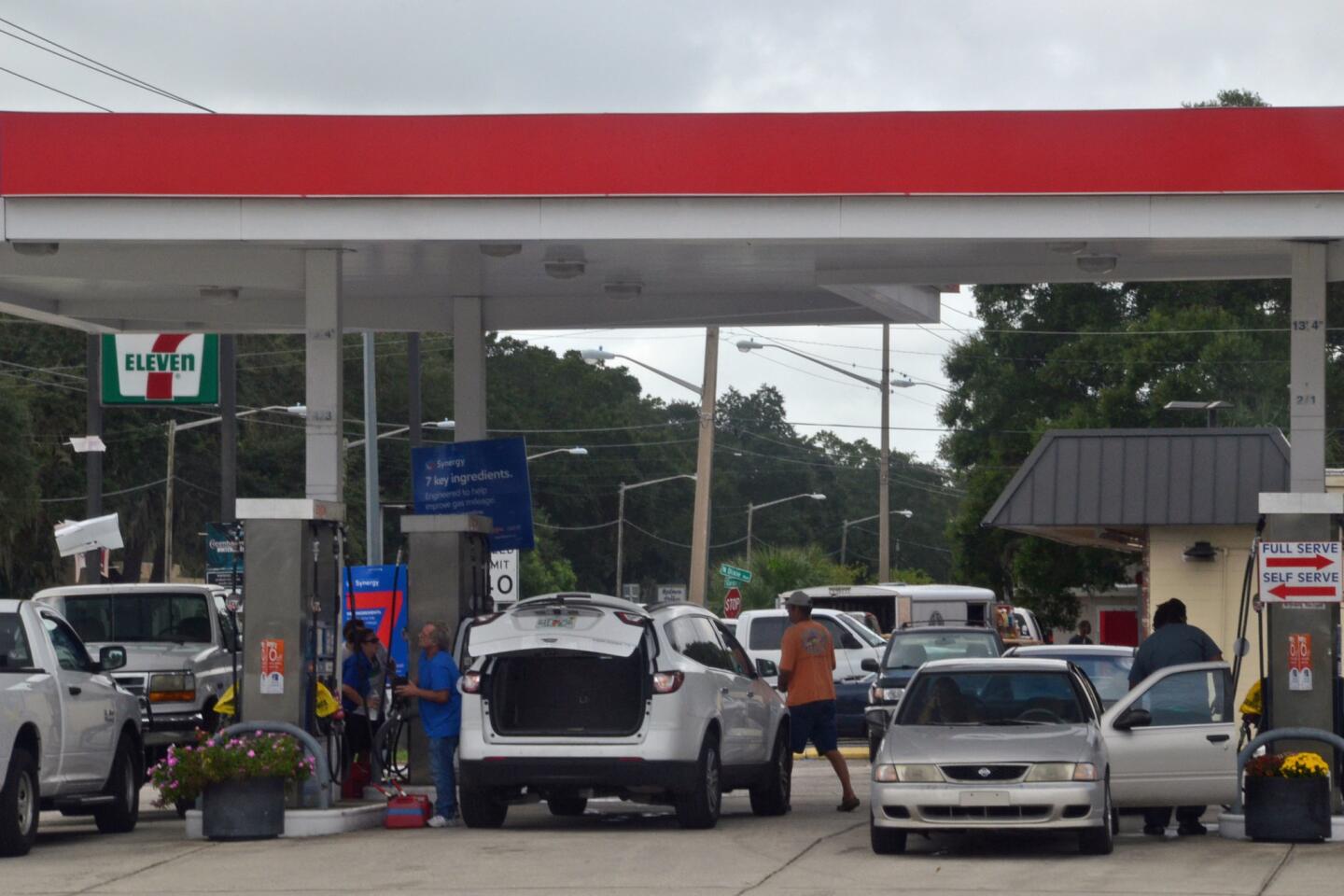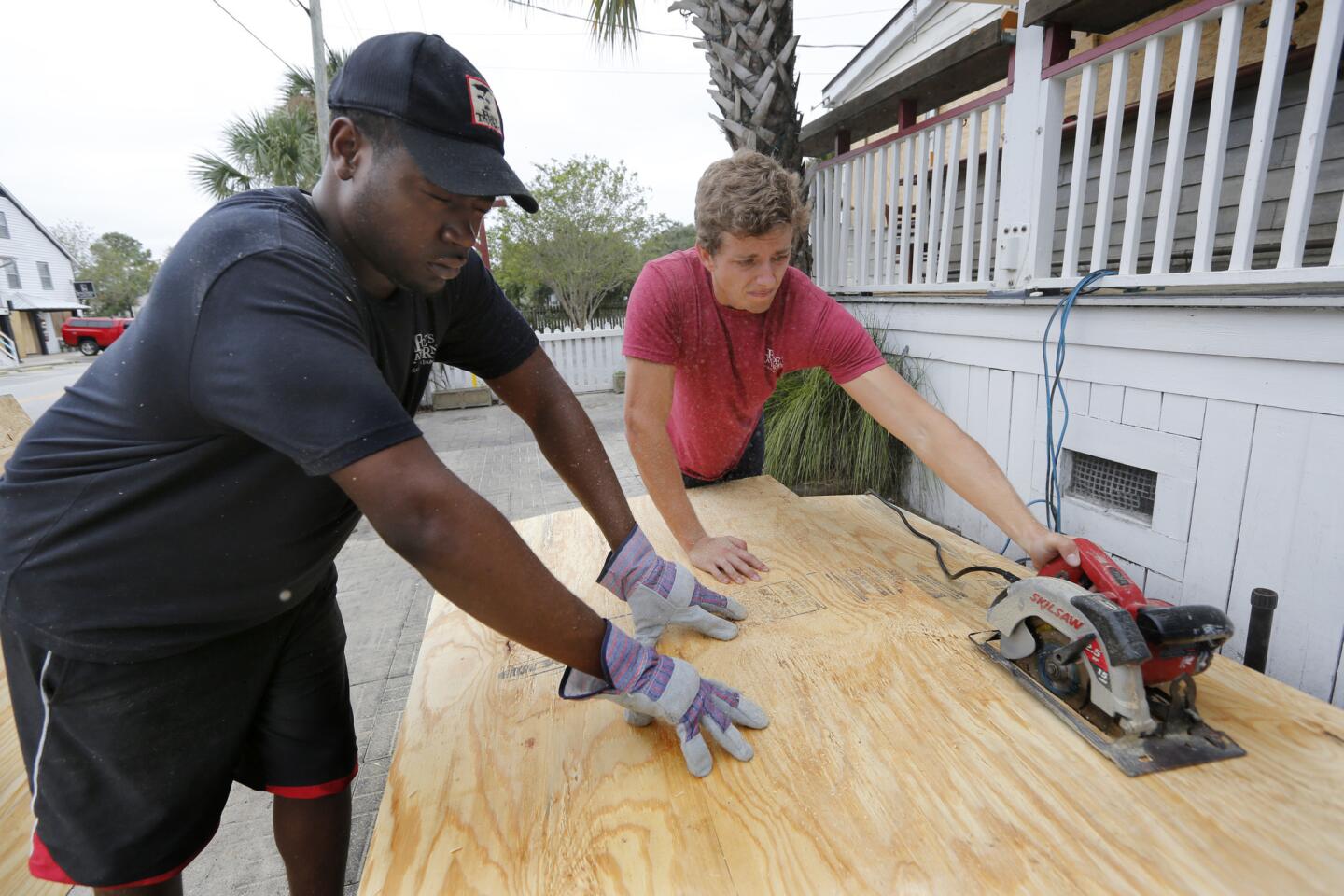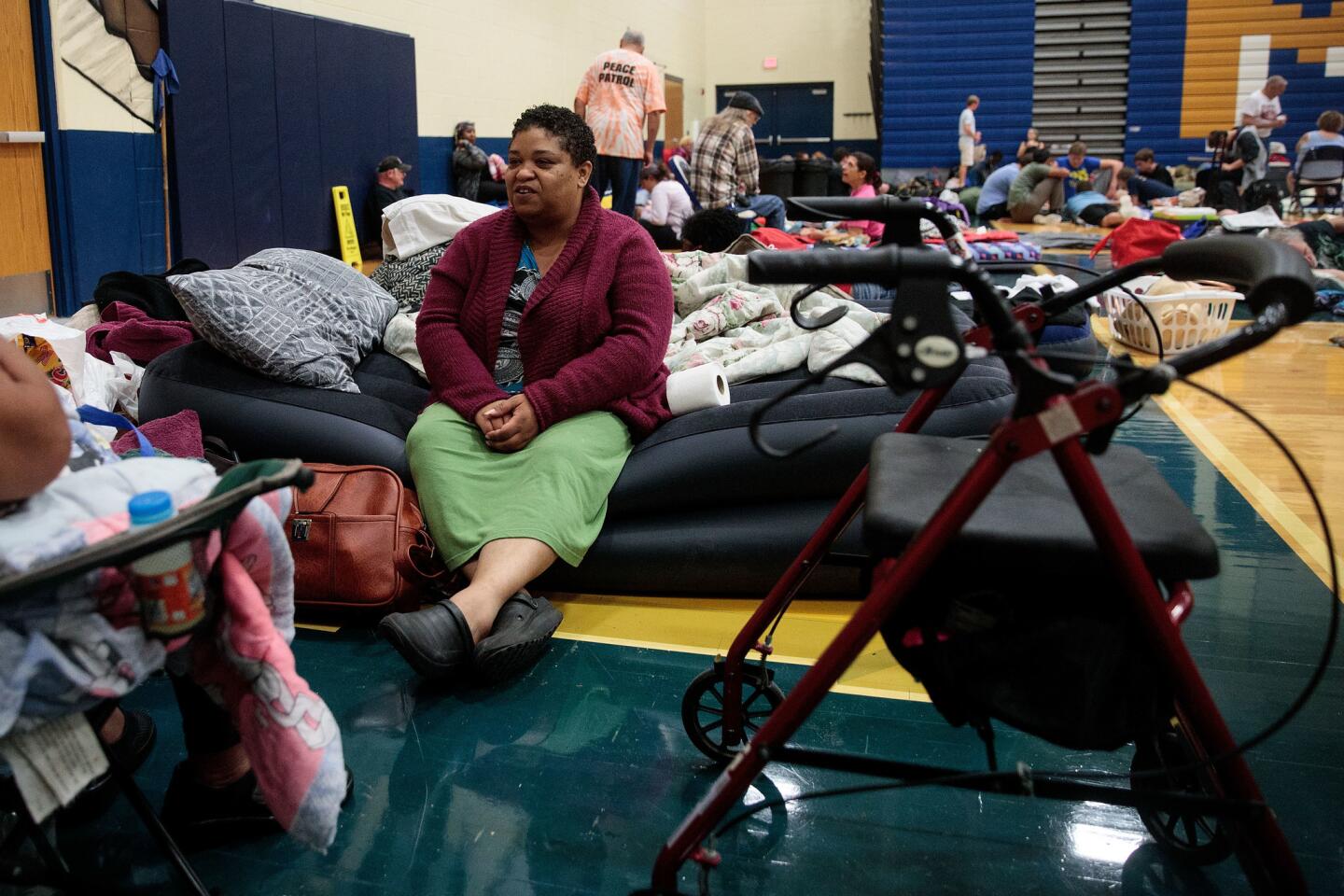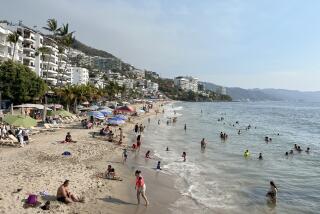A ghost town in Florida: In the shadow of Hurricane Matthew
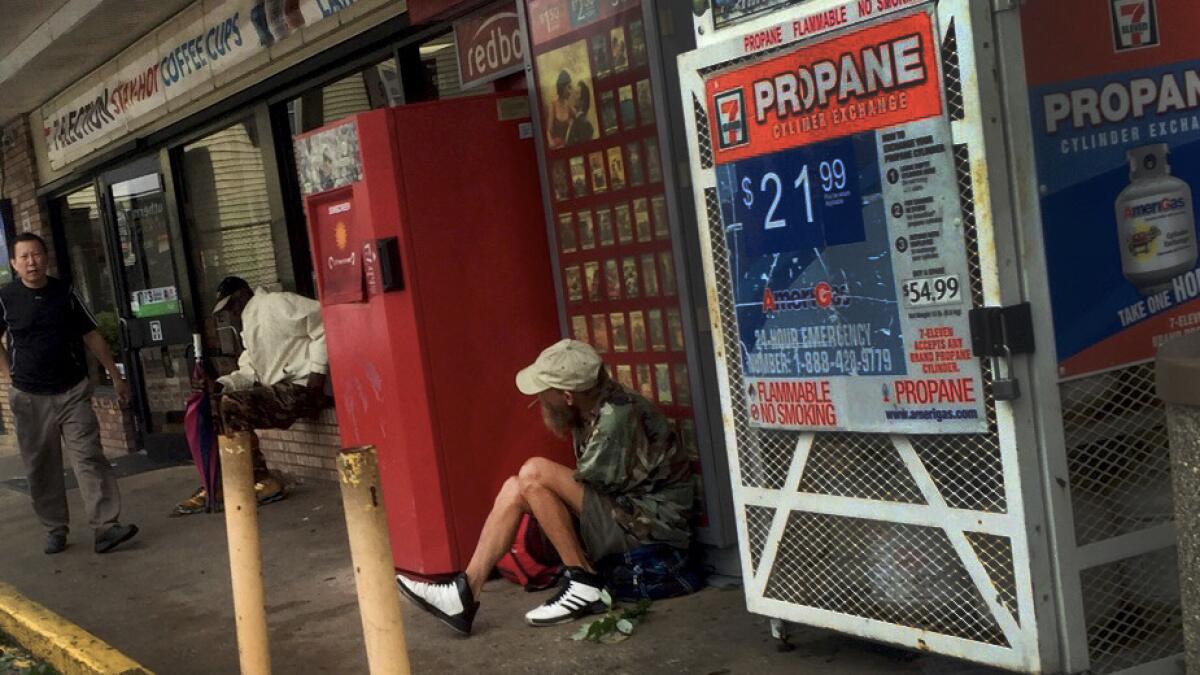
Reporting from Eatonville, Fla. — In Florida, the first sign of trouble is silence.
It is a noisy place, all hours, all days -- noisy in its color schemes, its traffic and the thrum of its fauna. Silence here carries ominous portents; the morning of Hurricane Andrew on Aug. 24, 1992, was famously balmy and unusually calm.
Another deadly storm, Hurricane Matthew, bore down on the state’s eastern seaboard on Friday. The silence began east of Orlando.
Crows no longer cawed, cicadas were still. Traffic, for once, vanished. In their place, the sound of palm trees bent in the wind.
In the town of Eatonville, an impoverished exurb north of Orlando, residents appeared to be heeding Gov. Rick Scott’s initial warnings of impending doom.
A detailed look at Florida cities where Hurricane Matthew may cause flooding »
Twenty-four-hour diners were shuttered and the gas stations emptied out, with handwritten paper signs taped to their pumps: “Out of Service.” The city’s broad boulevards were empty under a darkening sky.
To motorists driving across town Friday morning, Eatonville appeared to offer no food, no gas, no water, no restrooms—and no hope that any would return soon.
Except for one place. Around a bend, there suddenly could be seen a line of parked cars, a sign shining through the gray clouds in glowing orange, green and red. A bank of lighted shop windows.
Doris Mitchell, 34, nudged through the front door, past a line of people at the store’s cash register and made a beeline for the steaming pots of coffee in the back. She dipped her head to better hear her friend in the crowded store.
“It was just nobody out there, everything closed,” Mitchell’s friend said.
“Thank heaven for 7-Eleven,” Mitchell said, laughing, as she filled a coffee cup.
7-Eleven doesn’t have the cachet of the Waffle House Index, a back-of-the-envelope calculation coined by a former Federal Emergency Management Agency manager that judges a storm’s potential severity by the number of Waffle Houses that close.
But here on the outer bands of Hurricane Matthew, it stood in as Eatonville’s only restaurant, bar, latrine and emergency supply store.
The refrigerator was still full, but the hot food shelves were empty. Three men in red shirts rushed behind the counter to fill orders on the grill and take customers’ money at the register.
One of them, a slender man with a tattoo covering another tattoo on his neck, pulled away from the cash register and leaned into a microphone. His voice was audibly weary, even when heard through the tinny connection outside: “There is no gas. There. Is. No. Gas.”
The door of a Chevy Tahoe parked next to a pump slammed, and it pulled away.
Connie Benton sat in the driver’s seat of her white Ford Explorer and waited for her nephew to return with milk and cashews.
“Lord, and beer, I know he’s coming back with some beer,” Benton said, shaking her head.
She had told him to buy small amounts of each: Don’t go crazy. The storm had been billed that morning by CNN as a “KILLER STORM,” but Benton by 10:52 a.m. was checking the time and declaring the worst of the storm over.
On television, most stories about hurricanes are told on the coast, where residents face a clear decision: stay, or run.
But decisions far inland, at the fringes of the storm, are less certain. How bad is the wind going to get here? Is it too soon to relax?
Jerry Littrell, who is homeless, said he spent Thursday night under a plastic tarp in the woods behind the convenience store. On Friday morning, he was sitting about 20 feet from the 7-Eleven entrance, his back against its front wall, huddled against the gusts that were whipping warm, wet air in his face.
He pointed his thumb at another man sitting near the store entrance, who was holding a broken purple umbrella and grumbling inaudibly.
“He’ll hit you up for money,” Littrell warned a passerby.
The man raised his head and stared.
“Can you help me with a sandwich? I don’t want money,” he said.
Littrell took a pull from a reedy cigarillo. Behind him, Mickey Mouse grinned from a billboard advertising an upcoming series of Halloween Party nights.
Littrell was worried that the 7-Eleven’s awning wouldn’t protect him from the heavier winds. “If it gets a lot worse, I’m going to the car wash.”
The car wash at least offered a roof.
At that point, the wind started picking up, howling through the palm trees.
The man sitting near Littrell stood up unsteadily and walked into the storm, the wind pulling at his umbrella. Littrell waited a few beats, then began to follow.
Follow Nigel Duara on Twitter: @nigelduara
ALSO
Where Hurricane Matthew hit hardest: Hundreds dead in ravaged Haiti
Florida dodges bullet from Matthew as South Carolina braces for major storm surge
As Hurricane Matthew approaches South Carolina, many residents are staying put
More to Read
Sign up for Essential California
The most important California stories and recommendations in your inbox every morning.
You may occasionally receive promotional content from the Los Angeles Times.
